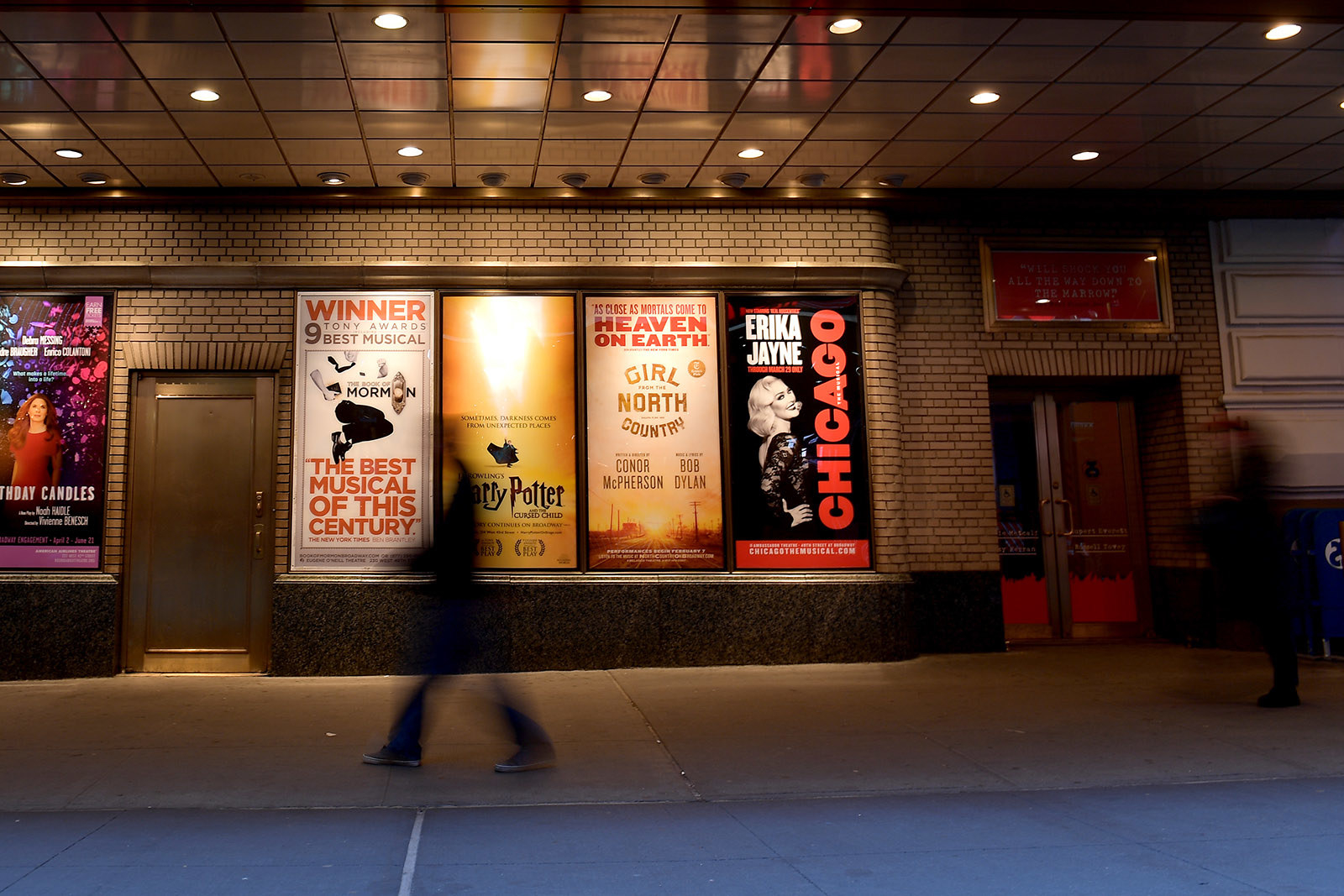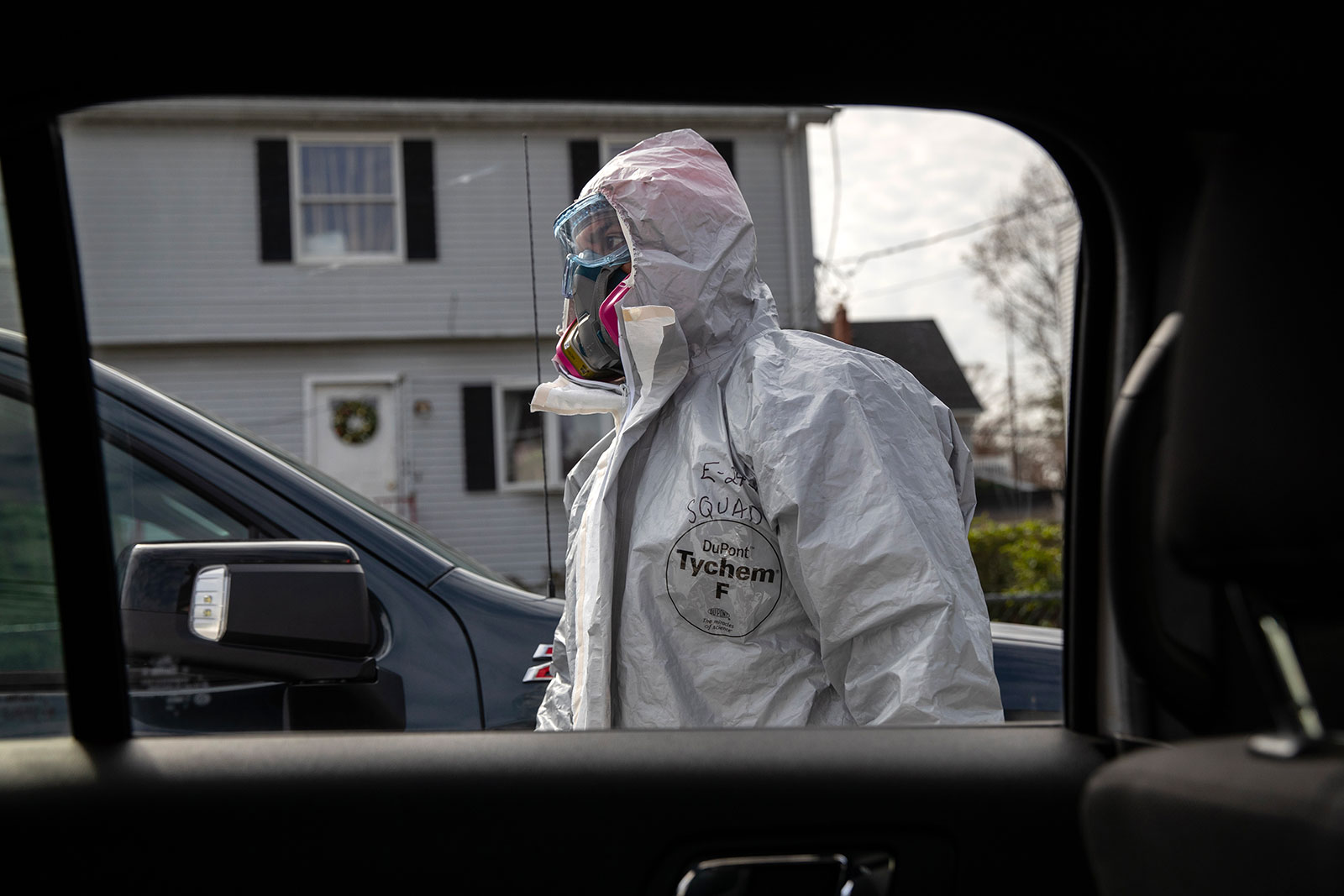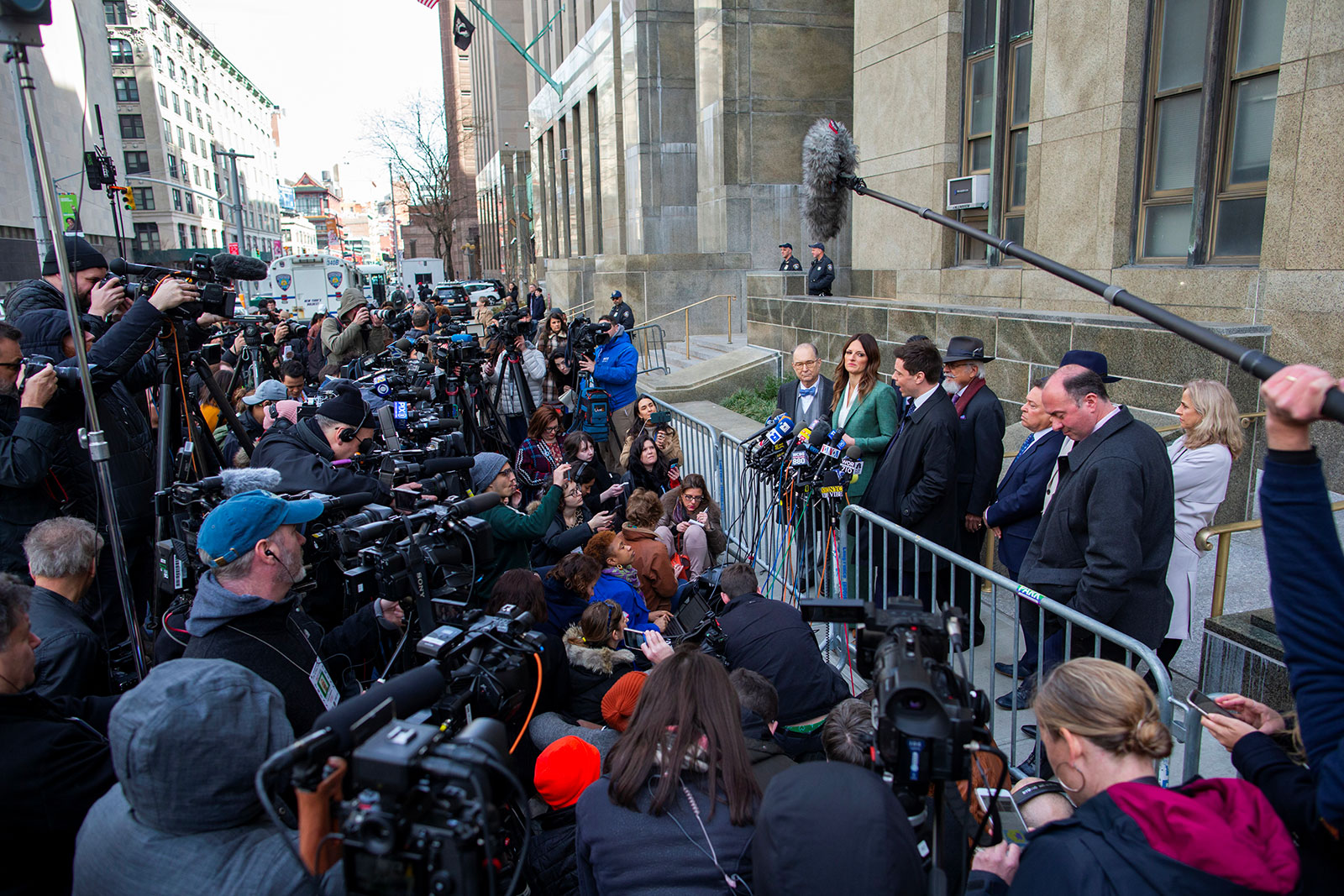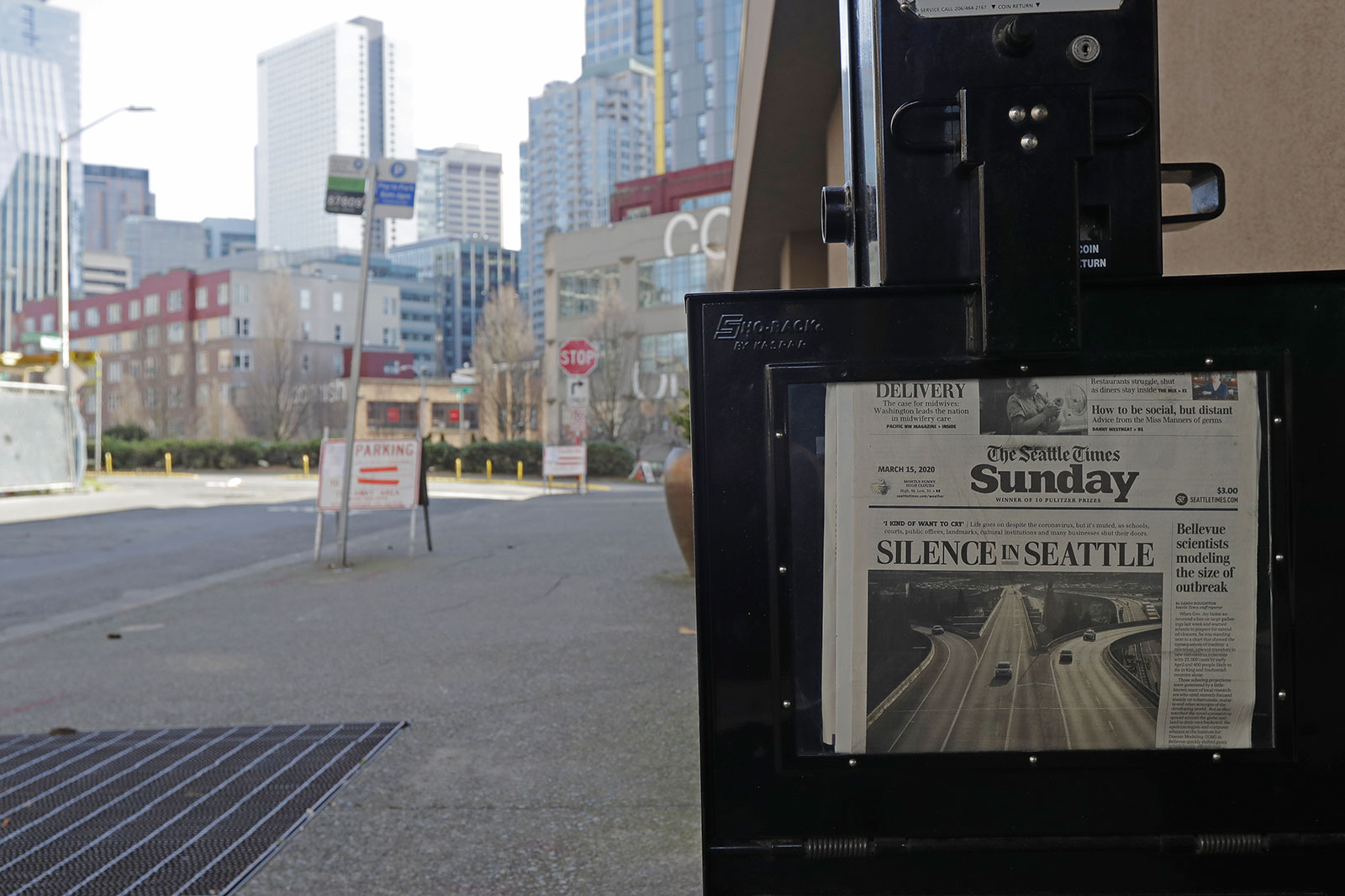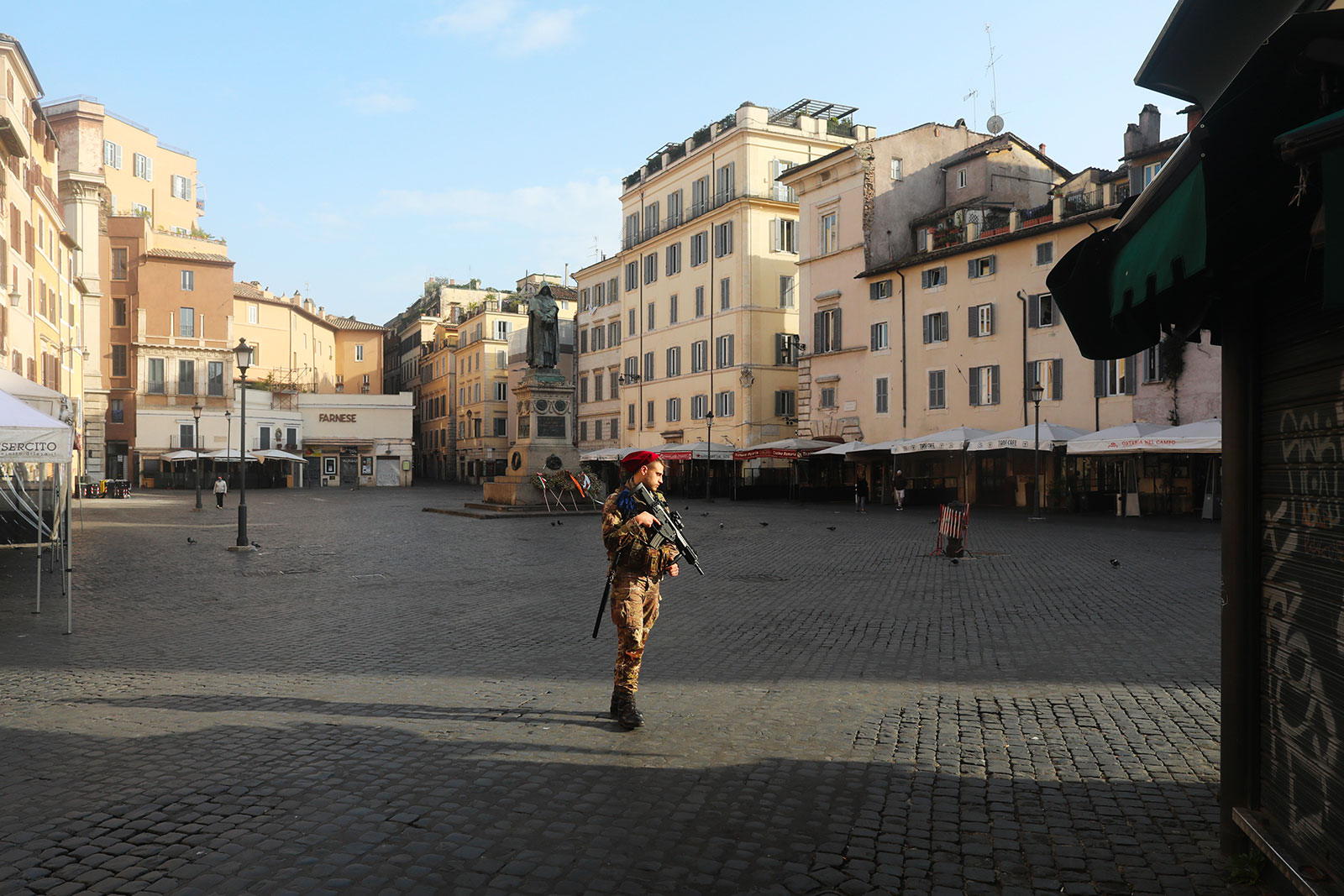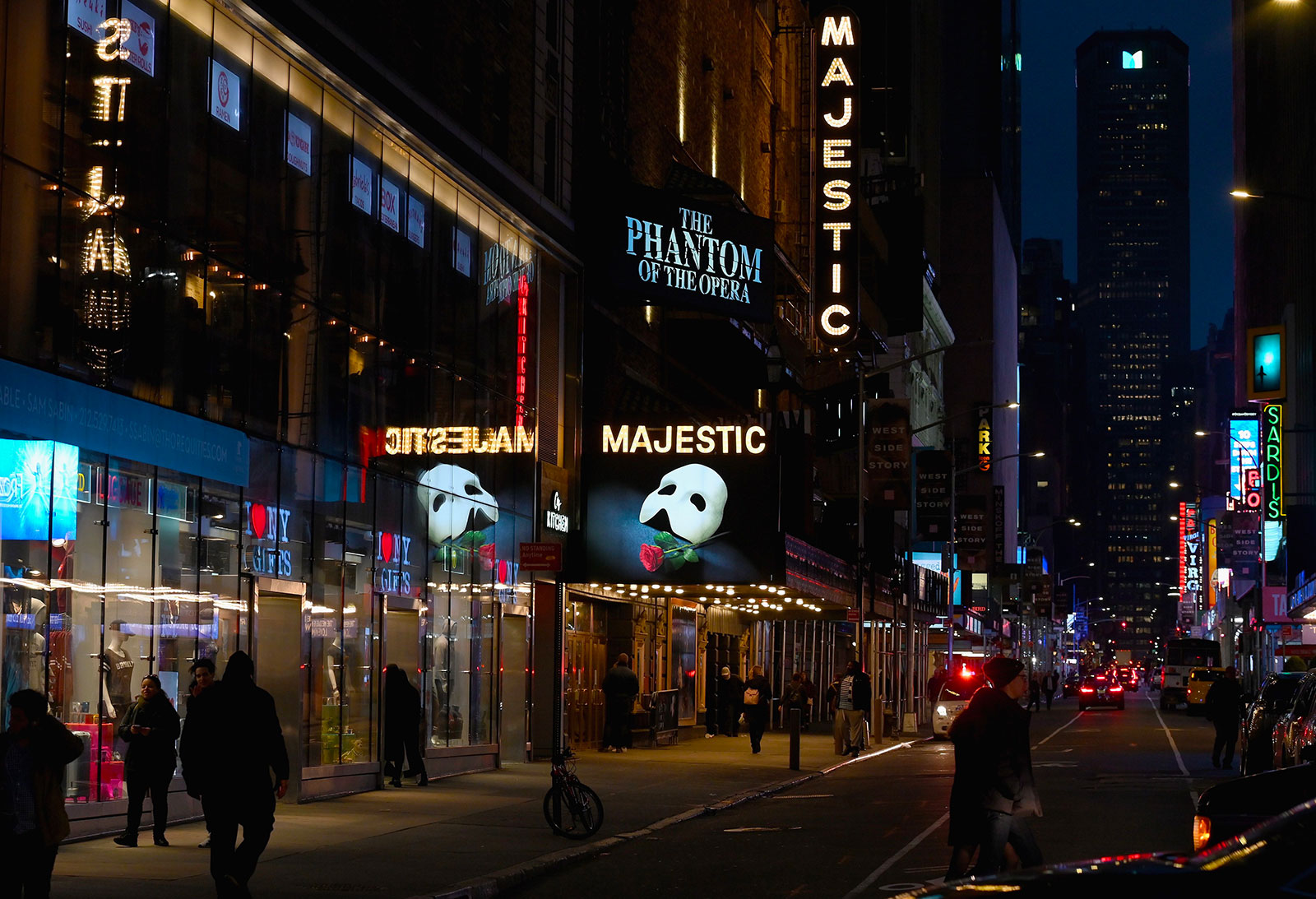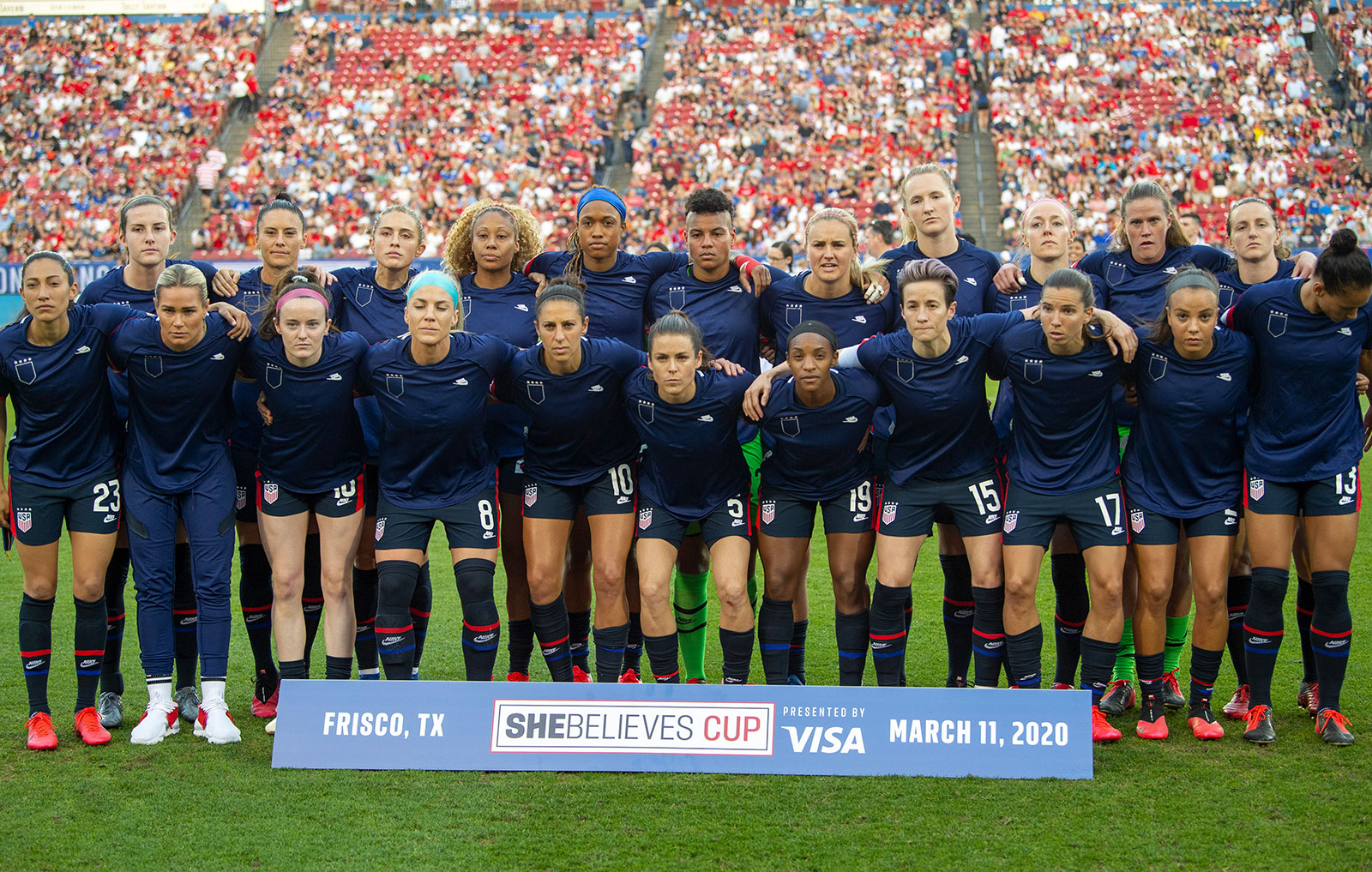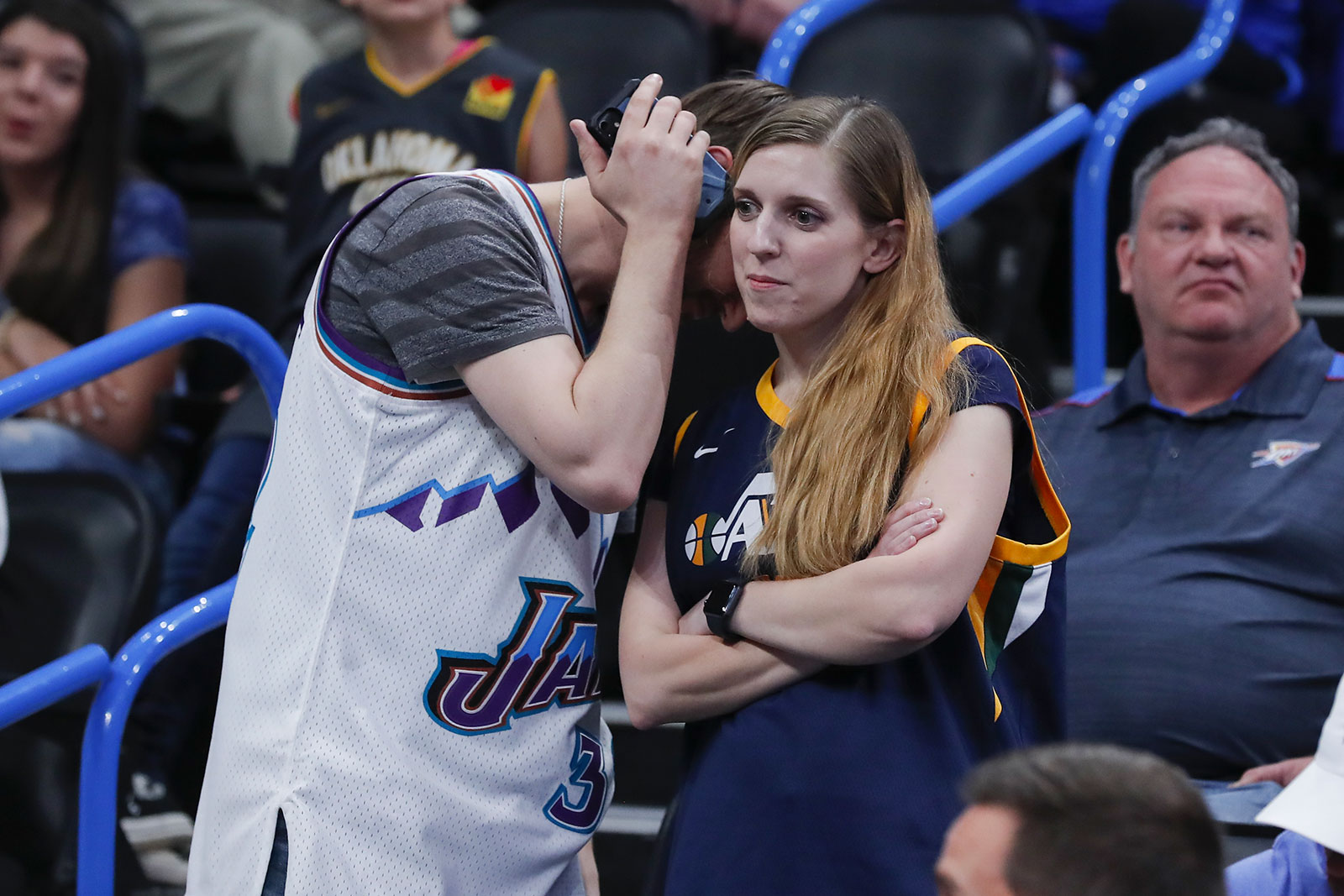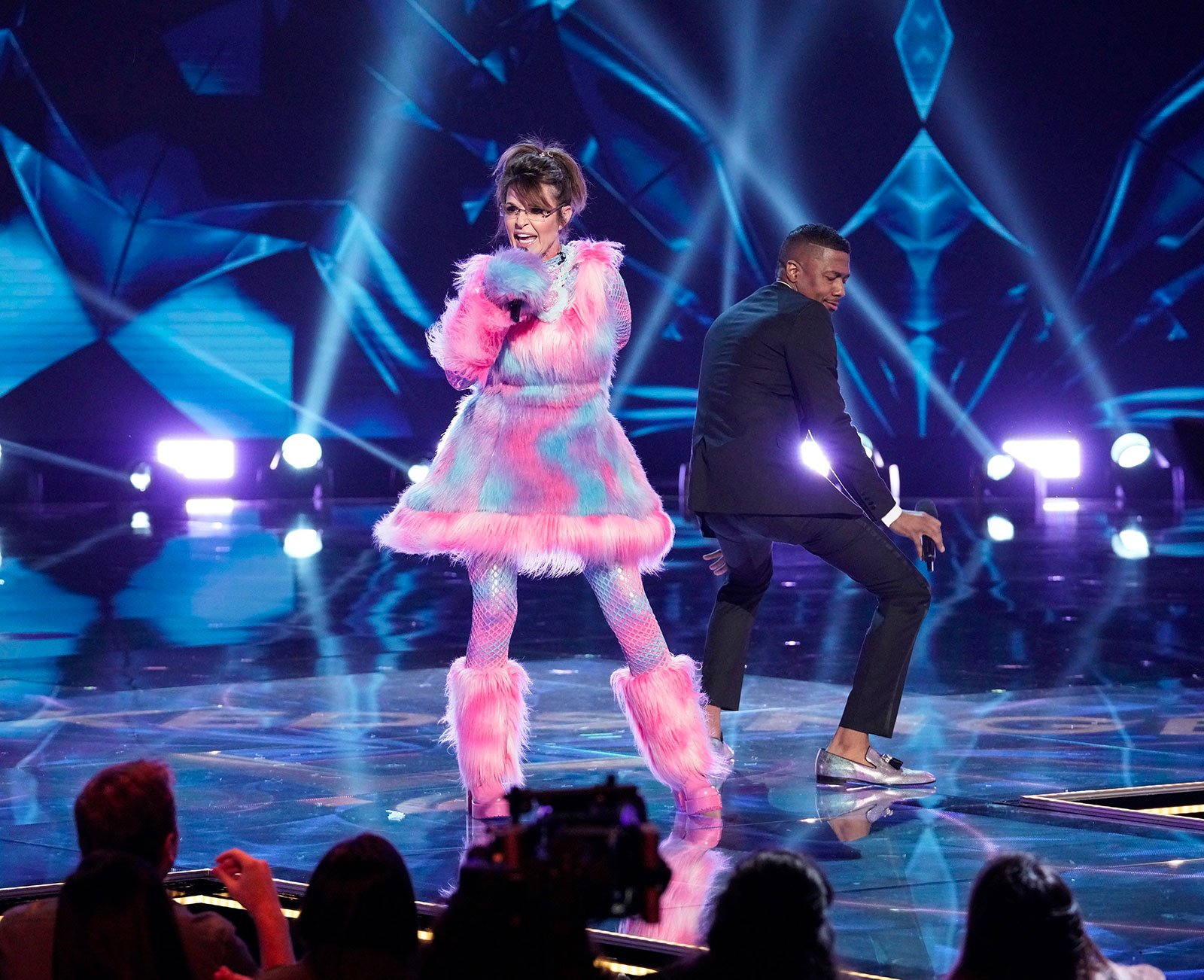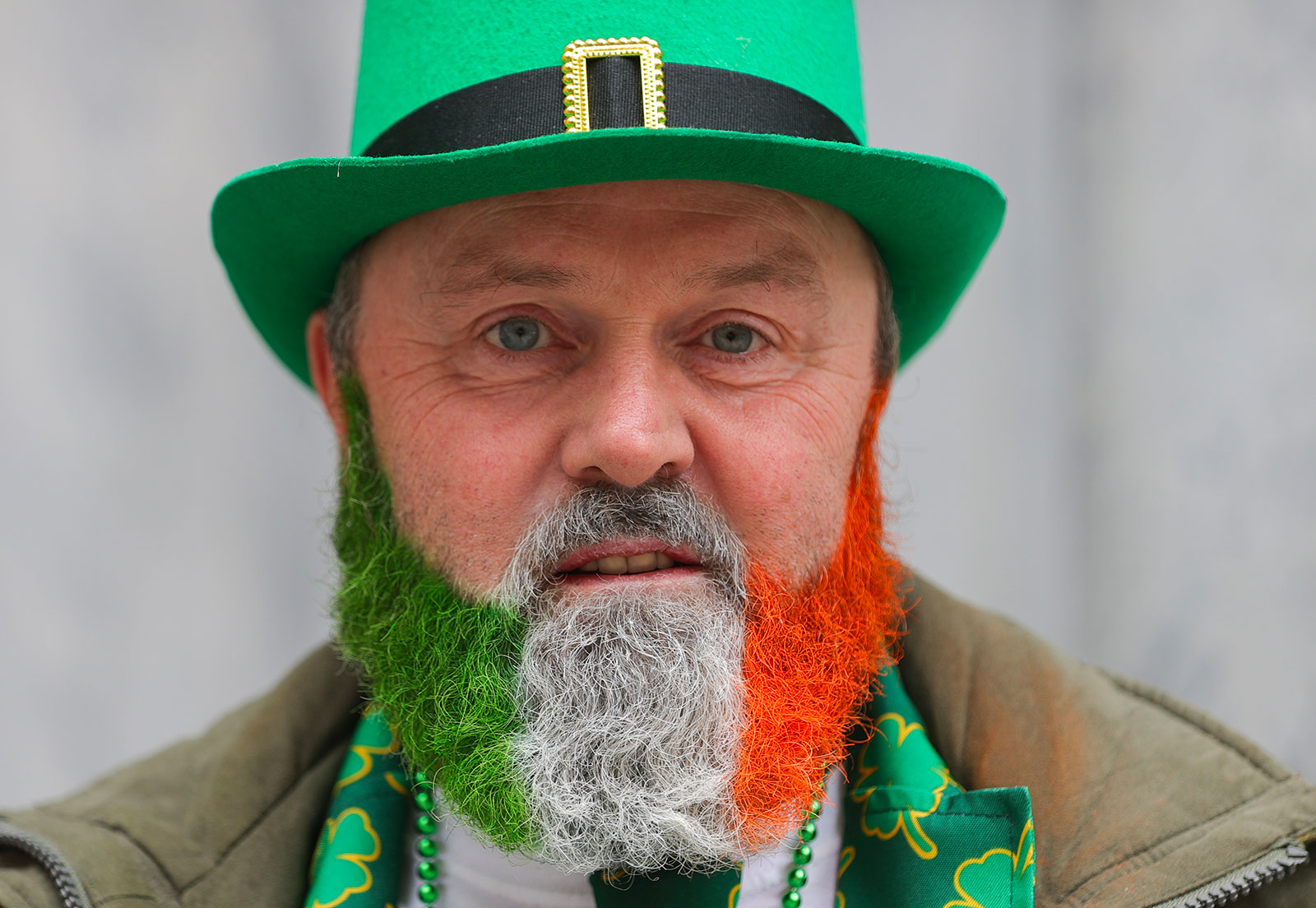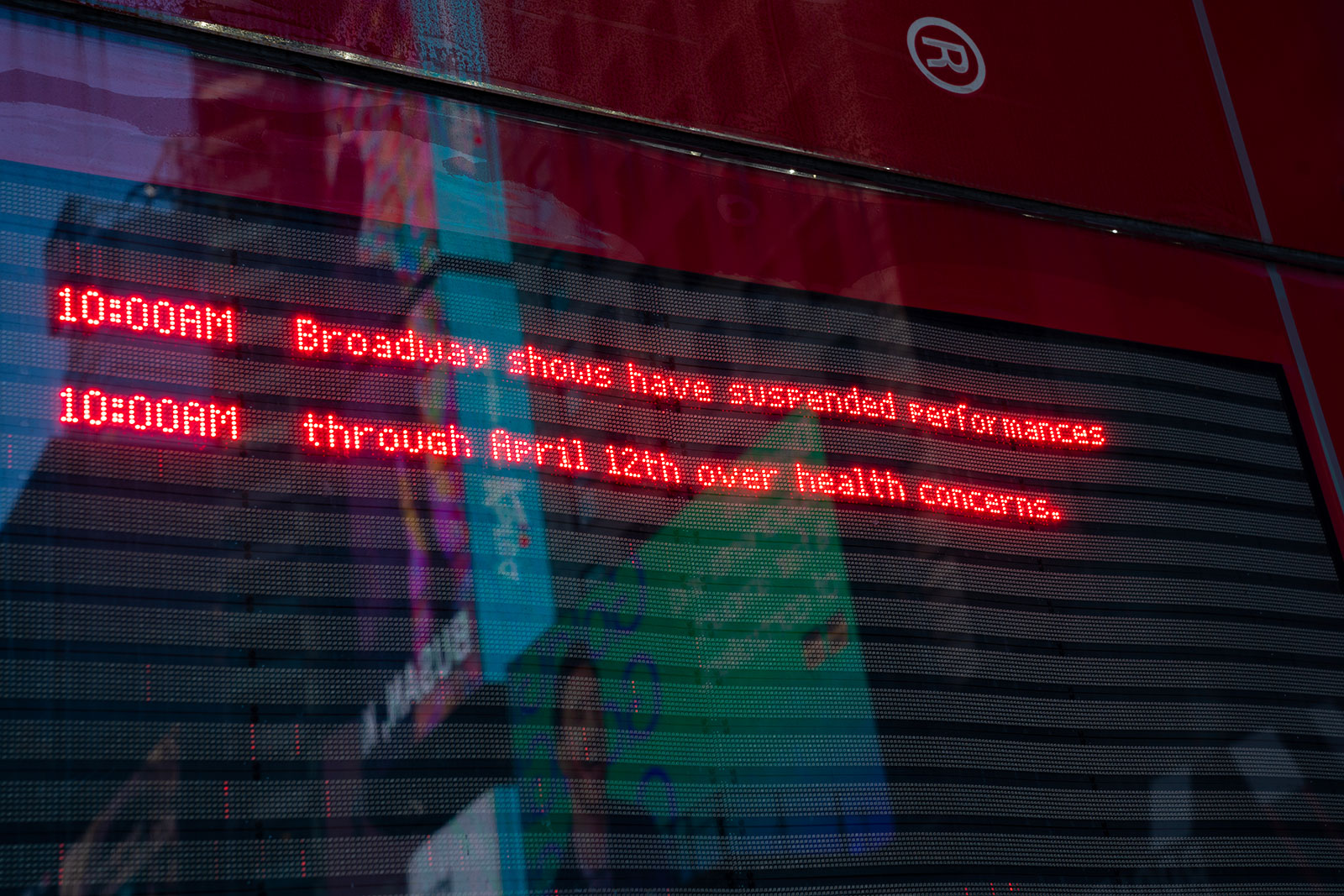What day did the coronavirus pandemic take over your life? What day did it really start to feel real?
For most people in the US, it was March 11, 2020. By that night, COVID-19 had transformed from a blurry threat to a divorce from normal life. Schools and entertainment began to close. Then-president Donald Trump addressed the nation, announcing a suspension of travel from Europe. The National Basketball Association halted its season. Tom Hanks got it.
So many forces of history years in the making converged on March 11 and were all subsumed by something few thought possible just weeks earlier. Suddenly there was no escape. The sentencing of Harvey Weinstein and the last moments of Bernie Sanders' failing campaign against Joe Biden — huge milestones for the #MeToo movement and American politics — were abruptly overtaken. Even the experts at the World Health Organization would agree March 11 was a turning point — that was the date they officially declared the COVID-19 outbreak a pandemic.
BuzzFeed News reporters interviewed 65 people in four countries to tell the story of that fateful day. We spoke with top scientists, politicians, and celebrities who were driving news, as well as regular people who were caught up in it. We heard what it was like in the locker room after the first NBA player tested positive, what the Hanks kids were told by their parents, what it was like to be the usher who got sick and shut down Broadway, what officials in the hardest-hit cities were having nightmares about, and what questions Donald Trump was asking inside the Oval Office. Oh, and we also found out how Sarah Palin came to be rapping dressed as a fluffy pink bear.
More than anything, what we heard was that COVID was creeping everywhere by March 11, even in places where it didn’t seem so, like courtrooms and soccer stadiums, and even among people whose attention was elsewhere. The virus was already out of control; many of us just didn’t realize it. By the end of the day, we would.
As one 16-year-old boy in New Rochelle, New York, told us, “March 11 was the day of reckoning where we realized this was really going to come and affect people’s lives, that it’s not some distant thing that’s only on the West Coast or in China or Italy — this is going to get to everybody eventually. I think that was the day people were like, Oh shit. This is coming for us.”
On that bright note, let’s start the day with him.
(Note: We have edited and condensed interviews for clarity. All are in Eastern Time unless otherwise noted.)
BEN FEINBLUM, then a ninth-grader at New Rochelle High School: On March 10, I’m sitting in algebra, and it’s announced that schools are closing and this 1-mile containment zone is a big deal. It’s on every major station. It’s New Rochelle, New Rochelle, New Rochelle — there’s a pandemic coming. Then I wake up on March 11 and I’m not in school, but I don’t feel like I’m in the epicenter of this massive attack. I don’t feel like I’m living in some 1-mile petri dish. But at the same time I know the entire rest of the country is looking to see what’s going on in New Rochelle. Is it really turning into this dystopian place? I got up. I did a little bit of homework because I figure, Hey, I’m going back to school in four, five, or six days. Obviously that didn’t happen.
NOAM BRAMSON, mayor of New Rochelle: I was working from the office. I think there was some degree of disbelief that New Rochelle should emerge as ground zero. I wouldn't describe my state of mind as panicked, but in those early days, I certainly had some dark thoughts. I remember a particularly difficult conversation that the city manager and I had in which we reviewed a series of potential worst-case scenarios. What will we do if there are food riots? What will we do if essential supply chains collapse? What will we do if the virus sweeps through our municipal workforce and makes it impossible to deliver essential services or public safety?
BEN FEINBLUM: If you look at the cover of the Daily News, it’s called “New Roch-Hell” and everything’s in yellow and it looks like hazmat suits. Businesses were slowly closed down and schools were closed, but it was made into this massive thing like New Rochelle is some bio-warfare zone and there’s people in the streets actively fighting the virus. But this 1-mile zone, it almost became the entire country within two weeks.
NOAM BRAMSON: There was this initial fundamental misperception. Even the containment zone, which New Rochelle was known for and which seemed like a sensible approach in the moment, in retrospect appears ridiculous because it was based on this flawed notion that we were dealing with a localized outbreak, as though it was a kitchen fire that could be knocked down with a hand extinguisher. We know now there were about 10,000 cases in the New York area circulating without detection, so the fire was already way past the kitchen. It was through the walls and the ducts. Any approach focused on New Rochelle had no chance whatsoever of success — but that’s in hindsight.
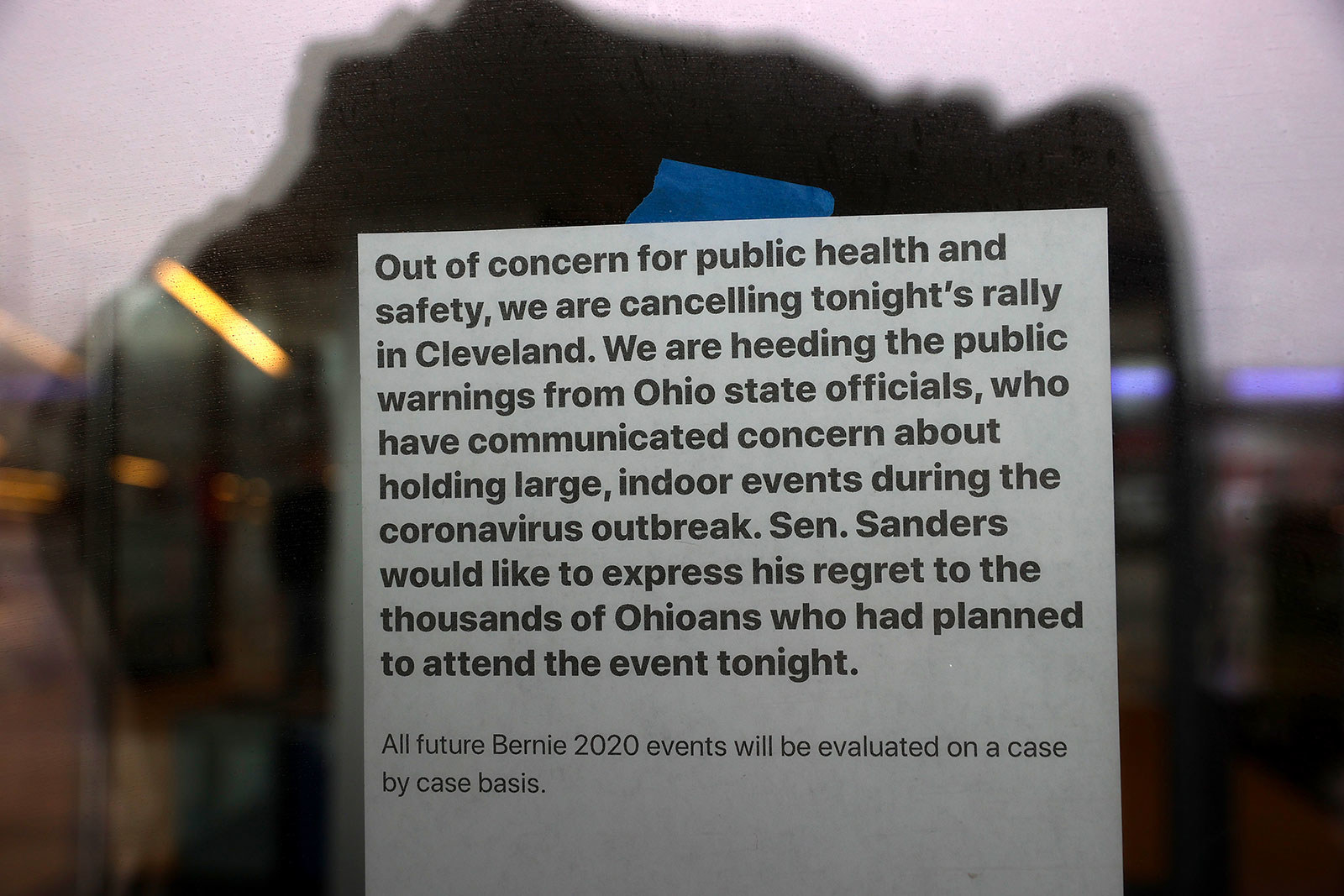
In Burlington, Vermont, Sen. Bernie Sanders and his top campaign staffers wake up the morning after Joe Biden has won five of six states in the Democratic primaries, including the key state of Michigan. Biden and his campaign are at the peak of their complete turnaround and appear to be speeding toward inevitable victory. On the previous evening, March 10, both campaigns decided to cancel rallies in Cleveland.
CHRIS HAYES, news anchor for MSNBC: I had done a weird midnight shift anchoring that Tuesday night and I think I remember at that point my background feeling was very uneasy about people voting. Does it make sense to do this? But democracy has to go ahead. That previous weekend I had spent the weekend on the phone with various public health officials who said, “This is going to be really bad, and we’re not moving fast enough.”
FAIZ SHAKIR, Bernie Sanders 2020 campaign manager: For weeks we had been having conversations around COVID, both as a practical matter for the campaign and how much to address it in our policy. I remember Sen. Sanders saying to me at multiple points, “Faiz, we are going to have to think about shutting down our rallies.” On March 10, I remember we were in the Westin hotel in the Detroit airport. I had spoken to the senator about how things were getting worse, and we had the team tracking Ohio because we were preparing to travel there. Gov. [Mike] DeWine had stopped a basketball game, maybe — a substantial gathering. Immediately, I called the senator. I said I think it makes sense not to put people in harm’s way, especially just being honest about our campaign and where we were at. The senator immediately said he didn’t want to put anyone in harm’s way. I called [Biden campaign senior adviser] Ron Klain. We were wondering what they were doing. They were wondering what we were doing.
ANITA DUNN, senior adviser on the Biden campaign, now working in the White House: [Senior Sanders adviser] Jeff Weaver and I had an agreement that we would stay in touch with each other and that if one campaign started deciding to pull down events, we would let the other campaign know so we could move together in concert, so that neither campaign made the other campaign look bad or created issues. February was what we call the dark days. March is the anniversary of all our greatest moments. March 10 was a really wonderful event, because the entire campaign staff, most of which had not seen the candidate for months, all got to be together and celebrate the incredible turnaround with Biden and Dr. Biden. Our health advisory committee told us that we would need to shut the headquarters [in Philadelphia] down. Which, at that point, there were no positive cases in the city of Philadelphia and there had been three in the suburbs. And you know, what the doctors told us was, “Don’t kid yourselves. It’s not that there aren’t cases in Philadelphia; it’s that nobody’s getting tested in Philadelphia.”
ALLIE PANTHER, director of scheduling for the Biden campaign: We were all tired, first of all. We were obviously thrilled about the election results, but also realized we were facing a grave crisis. It was sinking in for all of us that this wasn't going to be like any campaign that had happened before. We were going to realize that if we had pulled down one event, it wasn't like we were going to go back. I went to Trader Joe’s for the first time since the Iowa caucus. I remember talking to my mom and then my best friend on the phone on the way there and telling them I was going to pick up a few things and they both were like, “No, no, you need to stock up.” By the time I got there, the shelves were empty. All I was able to buy were frozen fish sticks and latkes.
CHRIS HAYES: I felt like we were all standing on a beach, and this wave, this tsunami, was building on the horizon and people couldn’t see it and you’re screaming for people to get off the beach. I remember that about Italy. We are two weeks behind Italy, and they have one of the best hospital systems in the EU and it’s melted down.
RYAN NOBLES, reporter covering the Sanders campaign for CNN: We woke up that morning with the reality of Sanders losing those races and also losing the ability to go out and sell his message. And I think what exacerbated the timeline for him was if he wasn't able to do rallies, he lost the biggest tool he had in his toolbox. His advisers were telling us privately that his path to the nomination had evaporated.
ARI RABIN-HAVT, senior adviser on the Sanders campaign: We were a campaign built on public events, public momentum. In February, we had giant rally after giant rally after giant rally. We had a February of huge momentum, winning a plurality of votes in the first three primaries, holding huge events everywhere we went. Obviously, we kind of hard-stopped on that.
FAIZ SHAKIR: The senator told me on the 11th, he said, “Faiz, would you please quietly reach out to whomever you deem best on the Biden side? At that juncture, let’s start an open line of communication. Tell them we want to talk, and we are assessing the course of our campaign.”
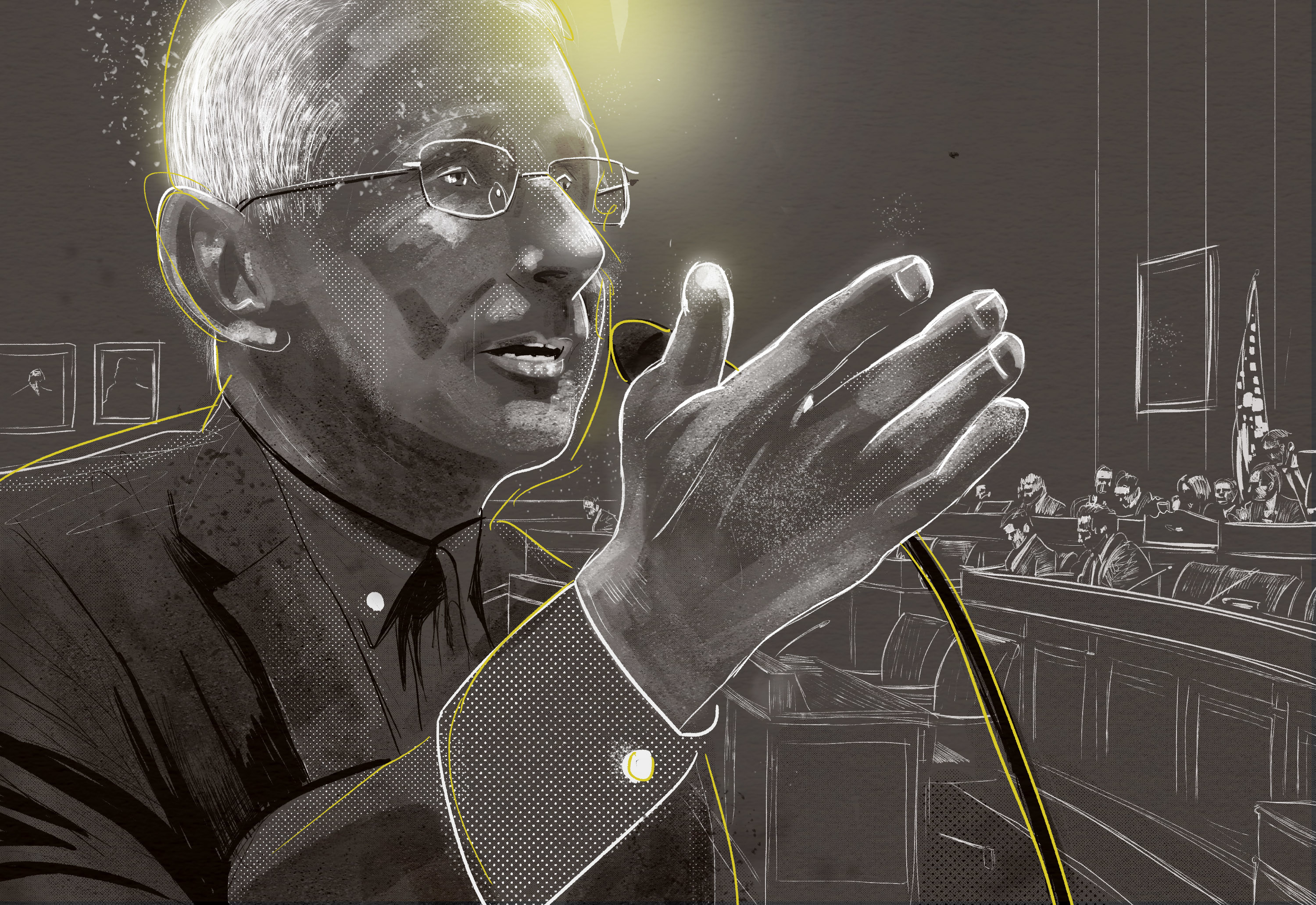
In Washington, DC, government business continues. At 9:33 a.m., Rep. Carolyn Maloney gavels into order a House Oversight and Reform Committee hearing on the response to the coronavirus. In attendance are Anthony Fauci, director of the National Institute of Allergy and Infectious Diseases, and Robert Redfield, director of the Centers for Disease Control and Prevention.
ANTHONY FAUCI: That day was just emblematic of the intensity and the extraordinary uniqueness of this year, because right before going to the hearing, which was a morning hearing, I was told that President Trump wanted me at the White House at 12:30 p.m. for a meeting about travel restrictions that we had been discussing over the previous few days. And that was really a dilemma because he wanted me there at the White House at 12:30 and the hearing was scheduled to end at 12:30, so do the math. Yeah.
FOREIGN SERVICE OFFICER at the State Department, who requested anonymity in order to speak freely: I was in training at a facility in Arlington, and through February and March there was this foreboding that we were going to have to make serious amends to the way we did business. First, the department canceled a trip I had planned. The admin and medical folks were having lots of discussions that seemed hushed and urgent that we most often heard about secondhand. On March 11, we were just bringing hand sanitizer to work and talking about whether masks could be useful at the water cooler.
CY VANCE, Manhattan District Attorney: COVID was coming, and I was concerned significantly that if the sentencing did not go forward on this date that it could be delayed for god knows how long. And indeed, this sentencing took place on March 11, and then I believe one or two days later the courts closed for months. We were looking, in one sense, to the court. When the court says show up, we show up. I know the numbers of COVID were creeping up. I was concerned whether parties might not be able to show up because they’d become ill or the court might feel it was unsafe to hold the sentencing, but it was an important sentencing and I think the judge was determined to get it done because nothing good would come from delaying the sentencing in a case that was so hard to get to this point to begin with.
ROSANNA ARQUETTE, one of the first actors to come forward to the New Yorker in 2017 with allegations against Weinstein: We’d all been incredibly anxious. We’d all been in New York, and a lot of us were here in Los Angeles. I was going to be there, but then because of COVID — it was all really the beginnings of it, but it was enough where everybody was really anxious. “Don’t fly.” So I didn’t go.
DONNA ROTUNNO, defense attorney for Weinstein: It was a very tenuous time in the country. I remember flying back because I’d gone back to Chicago from New York after the verdict. Of course, we’d heard about coronavirus and every day we’re getting more and more information, so flying was becoming more of an issue. You could just sort of feel things shifting. The country was changing.
CY VANCE: I met with the survivors in my office before we all went to court. I got to express directly to them my respect and appreciation for what they were willing to go through in order to let the justice system get to an appropriate and just resolution in Weinstein’s case. Then we went up to court together, and we all sat in the front row.
JANE ROSENBERG, courtroom sketch artist: During the sentencing, I was sitting in the jury box and I saw Weinstein front-view. He was in a wheelchair at that point. He had handcuffs on, which they undid. He’d been handcuffed to his chair, I think. In the front row behind him were all the victims, the women who had testified against him. I remember Weinstein had done his statement and turned around. His statement was kind of clueless. It was like, “You all don’t understand.” He turned around toward the women who spoke.
GLORIA ALLRED, attorney representing Annabella Sciorra, Lauren Young, and Mimi Haley: I remember some of what he said. I felt that it was rambling, that it didn’t make a lot of sense. It was really a “Poor me, I’m the real victim” type of statement. I was underwhelmed with it. He had a lot of time to prepare for it, but it didn’t seem like it was prepared very well. He was a sad figure.
Around 11 a.m., Judge James Burke sentences Weinstein to 23 years in prison.
JANE ROSENBERG: I guess it was quite dramatic. When he got his very high, long sentence and the women were all in shock, their mouths dropped open and they were crying hysterically. It was a very big deal. They felt vindicated in a way. He got wheeled out and that was the end, and all the women were hugging each other. I was in the hallway, finishing my sketches madly.
PAULA WILLIAMS, a model turned interior designer who said Weinstein exposed himself to her in 1990, when she was 20: I was in Seattle when I heard the news. It felt surreal. Even though I knew he was on trial, even though I knew the whole world was watching, I didn’t think it would ever happen. I had held on to a secret for over 20 years, not even knowing that other women had the same secret. I was surprised that the sentence actually came through, that justice happened. It also felt at that time that justice wasn’t happening a lot. The world felt scary.
ROSE MCGOWAN, an actor who has said Weinstein sexually assaulted her in 1997: That day was fucking awesome. The preceding 17 years were not. I was home when I heard the verdict. After that I watched two episodes of Dr. Pimple Popper and vomited. I think the vomiting had more to do with the fact that because of the brilliant jury I suddenly had an ogre of a monster off my back.
ROSANNA ARQUETTE: When it came on that he got sentenced, I lost it. I just sobbed because I wasn’t expecting it. I wasn’t expecting that length, I have to say. It was unbelievable. It was the end of two and a half or three years of hell.
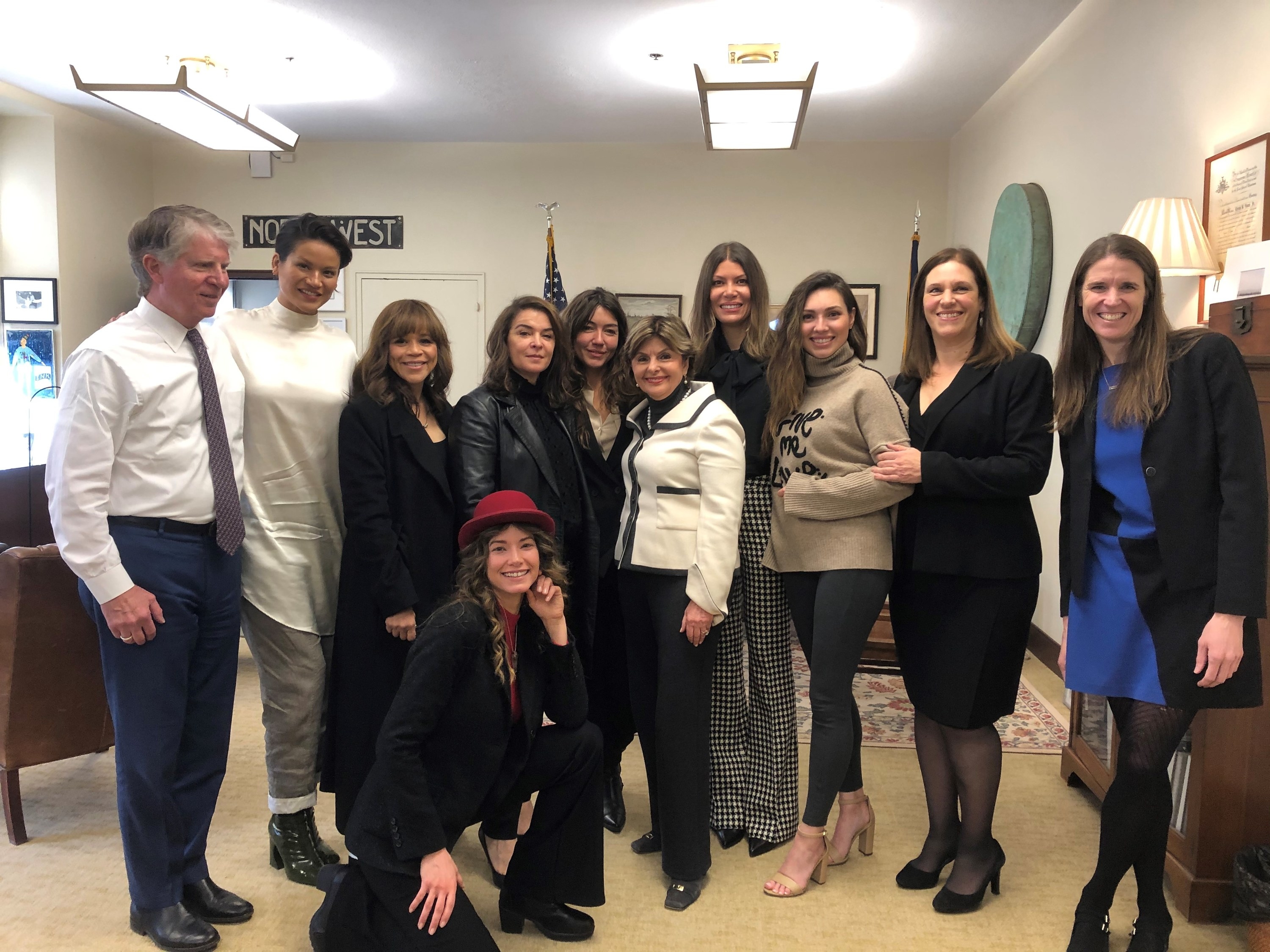
DONNA ROTUNNO: No matter how many discussions you have with a client, I don’t think you can ever really prepare someone for a sentence like that. Let’s put it this way: I wasn’t surprised. I knew that everyone was out to prove a point. I thought the number was absolutely ridiculous given the way the trial had played out and given the jury had found him not guilty of the most serious counts. I will continue to say that number had more to do with the pressure of the situation than the behavior that came out at that trial. I will maintain that until I go to my grave.
PAULA WILLIAMS: I want to say there’s an ongoing email with 30 of us, give or take. It was interesting, all the different reactions. There was a lot of celebrating, as you can imagine. There was also a very small group of us that I noticed were in shock but almost sad that this man was going to prison for the rest of his life. It’s just sad that this had to happen. So you want to celebrate, but it’s also kind of heartbreaking. This really didn’t have to happen.
CY VANCE: Later that night, I was thinking, Thank god we got the sentencing done when we did. Things were happening very quickly, and there was not a lot of understanding about what we were dealing with or certainty of any kind about how to deal with it. I do remember that that evening and over the next few days I was just remarking to myself and others how fortunate it was that the judge was able to complete the sentencing process that week. Those survivors had waited long enough.
GLORIA ALLRED: There appeared to be less coverage of the sentencing than there had been of the conviction, and I realized that was probably because coverage of COVID was exploding.
I really wasn’t paying much attention to COVID. Ordinarily, I would be, but I wasn’t really thinking about it very much because of the trial. Of course, that all changed when I took the flight back from New York to Los Angeles the next evening, March 12, because I saw a number of people wearing masks and I thought, Wow, what is this?
DONNA ROTUNNO: I flew back to Chicago that evening. The whole time I was living in New York, I ate every meal as a restaurant meal and I said, “God, all I want to do is make my own food!” And then I get home and the restaurants shut down and I go, “Wait, did I really say that? I really would like to go back to a restaurant!”
JANE ROSENBERG: I was exhausted. It was a very draining, long trial for me. It’s hard work. [When the COVID shutdown was announced,] I might have been looking forward to a break in the beginning. I was probably relieved for the first few weeks and thinking, This is not too bad. But then it just kept dragging on and on, and I thought I may not work again. I thought maybe I’d retired. March 11 — that’s the day my life shut down too. I went to prison on my own, and I was trapped inside just like Harvey Weinstein, sort of. Although I think I had it much better.
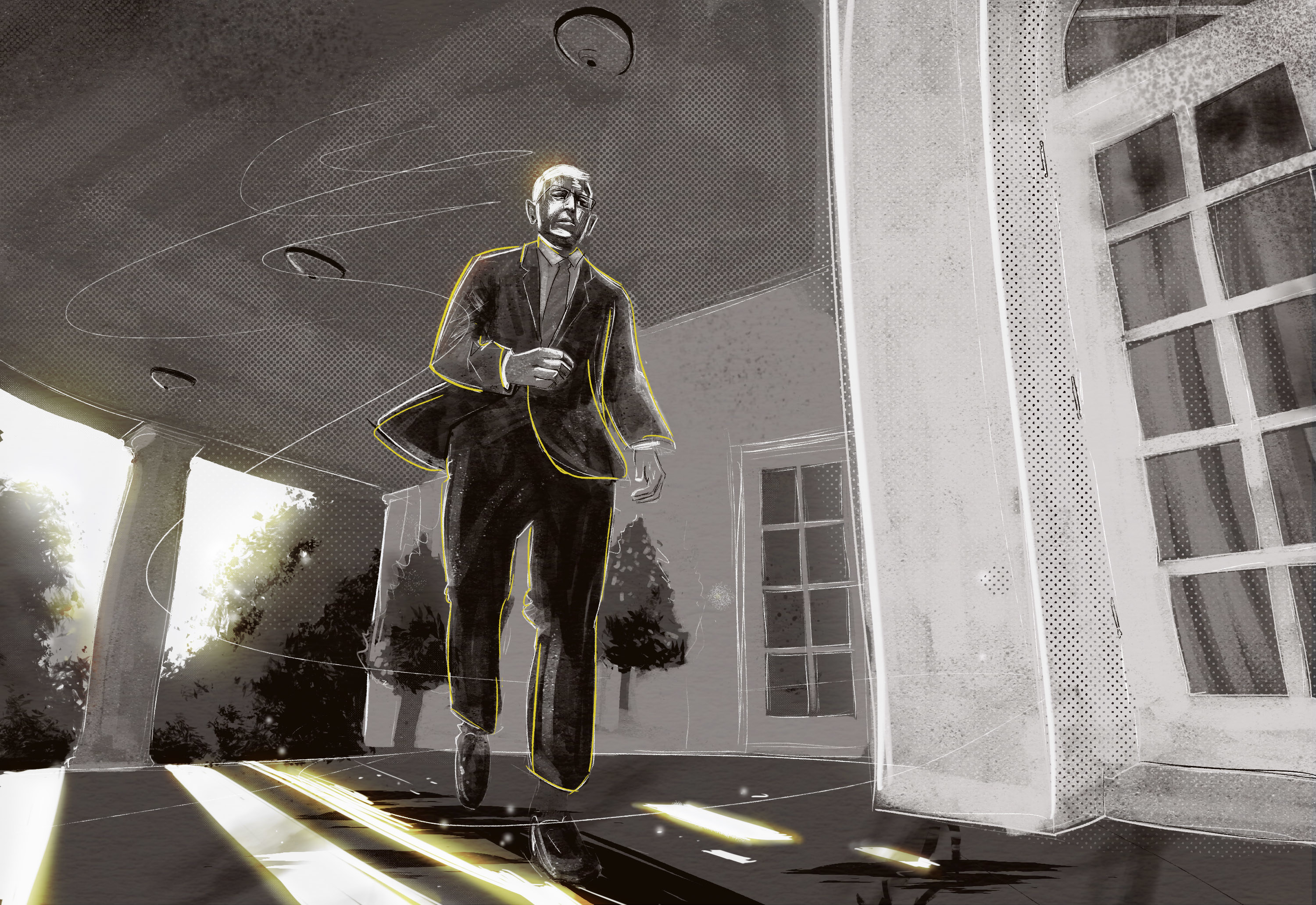
After Fauci tells the congressional hearing “things will get worse than they are right now,” he leaves for the White House around 11:45 a.m. for his meeting with the president.
ANTHONY FAUCI: We had to leave by 11:45, giving me enough time to get to the White House to get ready. So I announced to the chairperson, Rep. Carolyn Maloney, who I know well, I said, “I have to leave at 11:45 a.m.,” and I left. But then a strange thing happened: The chair and the committee were very annoyed. Yeah, because the Twitter feed was blasting away, saying that since the hearing itself was a little bit contentious. In my mind, it wasn't any more contentious than a usual hearing. They weren't particularly contentious with me. I think they were more contentious with Bob Redfield. But I remember that the Twitter feed felt that because I said that things were going to get worse before they got better, that the White House was pissed at me that I said that and they yanked me out of the hearing, which was completely crazy because that wasn't the case. I left the hearing and walked away, and there were like 20 TV cameras following me down the hallway and cameras clicking away at me as I was leaving the Rayburn Building, asking me why the president had pulled me out of the hearing, and I almost had to hide my laughter. Like, Oh my god, this is really crazy.
MARK TATUM, deputy commissioner of the National Basketball Association: We were all watching on TV when there was a congressional oversight hearing, and Dr. Fauci was asked whether the NBA was underreacting or the Ivy League was overreacting following the Ivy League’s decision to cancel its conference tournament. We were all watching when Dr. Fauci said, “We would recommend not having large crowds. If that means not having anyone in the audience when the NBA plays, so be it.” That was the morning of March 11. We all heard it.
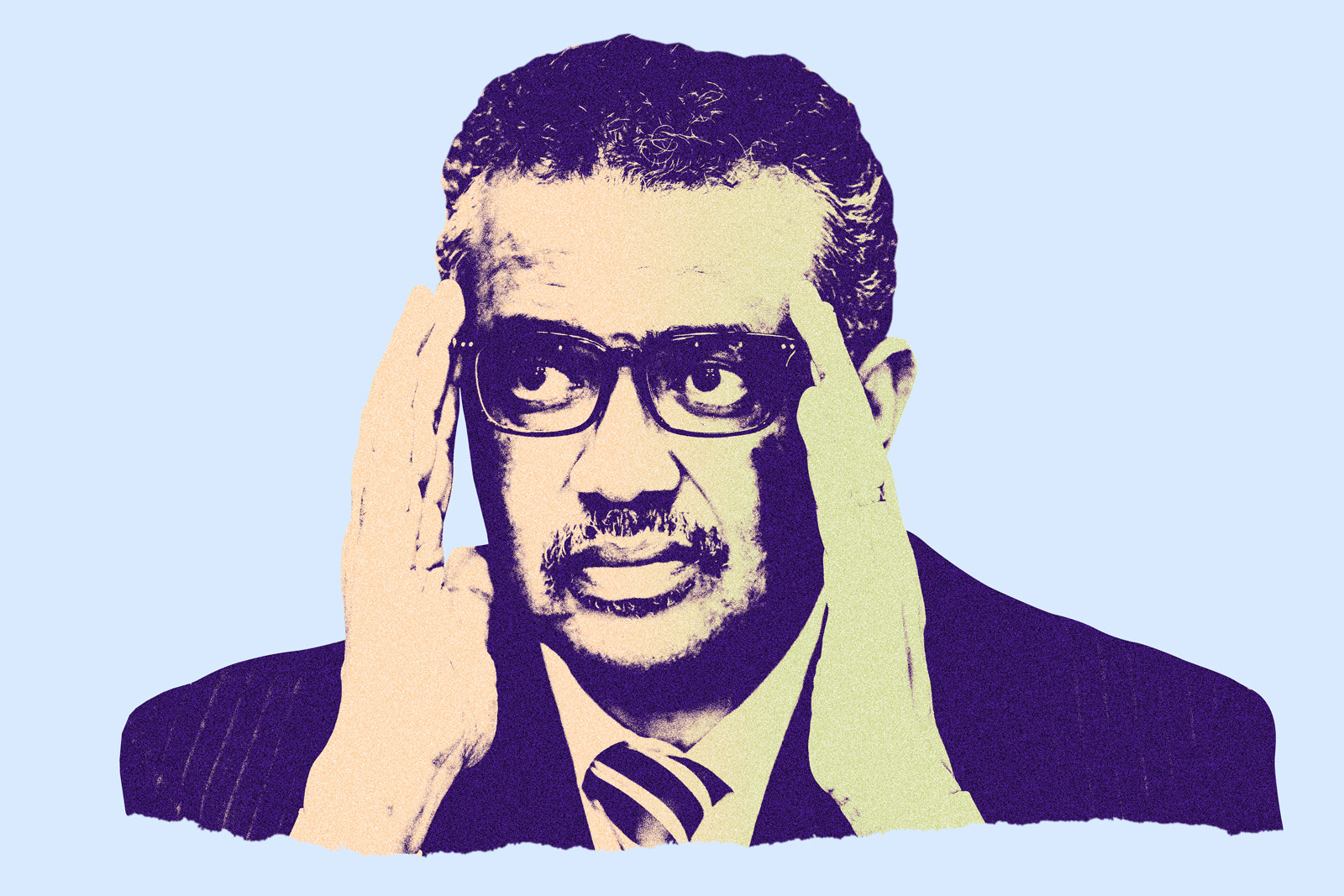
As Fauci heads to the White House, World Health Organization officials are about to hold a press conference at their Geneva headquarters shortly after 5 p.m. local time. WHO Director-General Tedros Adhanom Ghebreyesus declares a pandemic, meaning the virus is spreading outside containment measures in multiple countries worldwide.
MARGARET HARRIS, doctor of public health and WHO spokesperson who was in the room for the press conference: We had been discussing for weeks at what stage had the outbreak reached the stage where it would be characterizing it as a pandemic and, of course, how we would be talking to the world about that. The decision was not to be discussing it until it was announced by the director-general. And only a relatively small group of people were aware we were going to make the decision to characterize the COVID-19 outbreak as a pandemic that day.
GEORGES BENJAMIN, executive director of the American Public Health Association: I think my response on that day when they did it was “about time.” I remember in some ways feeling behind the curve because our national authorities weren’t really paying it the attention I thought it deserved. And I think certainly WHO, when they did that, I think most of the people around me and the people I was talking to kind of said, “All right, it begins now.”
MARGARET HARRIS: There was a sense of anticipation before the announcement. That kind of suppressed excitement. Because there was a buzz around the term “pandemic” and this sort of sense of moment around the term, we did realize people would take it as a more important moment than it was in terms of management of the response. But we also realized that it was important to be describing it that way because it was critical that countries got the message: This is very, super, super serious. This is not a game. This is not a test. This is not a dress rehearsal.
Shortly after noon, reporters spot Fauci arriving at the White House. He does not stop to chat with the media.
ANTHONY FAUCI: We got to the White House. And then the real discussions took place. You know, [White House coronavirus response coordinator] Deb Birx and Bob Redfield and I and [Health Secretary] Alex Azar discussed for a while that we should be restricting all travel from the Schengen countries, which are the 26 European countries, similar to what we did with China. And the feeling was that US citizens could come back, but they'd be funneled through one of 13 airports, and when they got here they have to self-isolate the 14 days. And yada yada yada yada, this was discussed. I remember that [Treasury Secretary] Steve Mnuchin and [National Economic Council Director] Larry Kudlow were against it since they thought that that would cause a real depression, not a recession. I remember them saying that. And we were going back and forth multiple times about it. Of note, [Trump adviser] Jared Kushner and [national security adviser] Bob O’Brien were actually in favor of it. They sided with me and with Bob [Redfield] and with Deb, who were saying that we really needed to do it. So we went in and we presented it to the president. He asked a bunch of good questions, many of them directed at me about the science of it: “What do you think?” etc., etc., and quite frankly he agreed that it was something that we should do and said: “Let's do it. We will recover from it,” which was really, I think, pretty good.
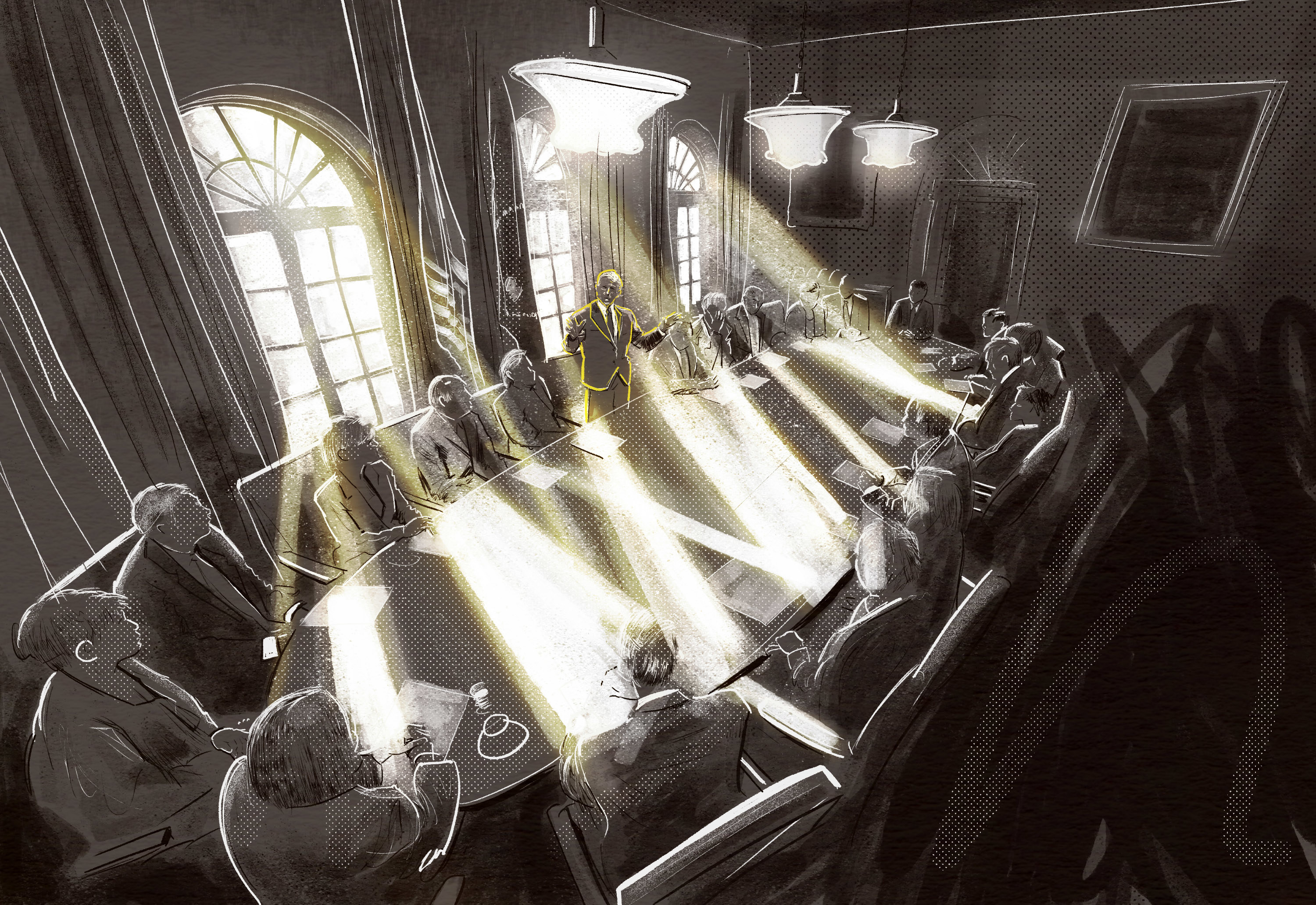
Waiting in the White House Cabinet Room for a meeting with the president on the COVID-19 crisis are the chief executives of some of the biggest banks in the country, including Wells Fargo, Citi, Bank of America, JPMorgan Chase, Goldman Sachs, and others.
GORDON SMITH, copresident and chief operating officer of JPMorgan Chase, who was at the White House: It was a small group. There was no hand-shaking. I think there were elbow bumps. The chatter was entirely around what each bank was seeing, how they were dealing with their branches, how they were going to deal with their call centers. I mean, it was really the financial system working as one system. People who would normally be competing aggressively with each other and had done that for years were really working together to work out how we solve this problem.
ANTHONY FAUCI: They were sitting there cooling their heels, waiting. What the president then said was, “Why don't you go in there and see what they think about the idea about, you know, shutting it down with the Schengen countries? You know, don't ask them permission. Just tell them what we're going to do right now and ask them what they thought.” It was interesting. At least what I could see in the room was they were all favorably disposed, and felt that that is something that should be done. So we went back and chatted with the president again and said, “Looks like they were OK with it.”
GORDON SMITH: All of a sudden we're effectively sealing off Europe! What a huge step. I mean, that weighed heavily at that moment. Not that it wasn't the right thing to do. I felt like, well, that's clearly the right thing to do, but that's a big escalation. And I remember just feeling like, you know, sometimes something sits heavy on you, thinking, My goodness, this thing is really, really beginning to run away. President Trump, at the meeting he said he'd had a COVID test and it was acutely uncomfortable, and he sort of rattled his eyeballs. He was quite vivid in his description of it.
ANTHONY FAUCI: Then we got on the phone. I think the vice president and I and maybe a few others got on the phone and called a bunch of people to tell them what we were gonna do: [House Speaker Nancy] Pelosi, [Senate Minority Leader Chuck] Schumer, [Senate Majority Leader] Mitch McConnell, [House Minority Leader] Kevin McCarthy, and others.
ED BASTIAN, CEO of Delta Air Lines: I was in my office in Atlanta. My DC office called and said, “The president wants to know where you're going to be tonight.” I actually don't really get those calls. They put me in touch with someone at the White House, and then that evening, the call came in from Mnuchin saying he was calling on behalf of the president because he had just finished a meeting where they had decided to shut down flying between continental Europe and the US. He wanted to know what the impact was going to be on Delta and on our industry. I know he called the CEOs of both American and United as well that evening. The genesis of those calls was really where the CARES Act was born, because we all shared with them that this was going to have an impact of tens of billions of dollars on us, and that while we would certainly comply and do everything to follow their lead, the damage was going to be massive. For Delta, that was about 20% of our business that they were shutting down immediately. I didn’t sleep much that night. I got a few hours and a lot of tossing and turning. I was numb. I had just lost my mom. She was my hero. On a personal note, the very first thing I personally could not do was to spread her ashes — we were going to spread her ashes in a little cemetery behind Vassar College — and we had a family gathering scheduled for the second week of March, but we didn't feel comfortable. People would have had to travel to get there. We still need to do that someday.
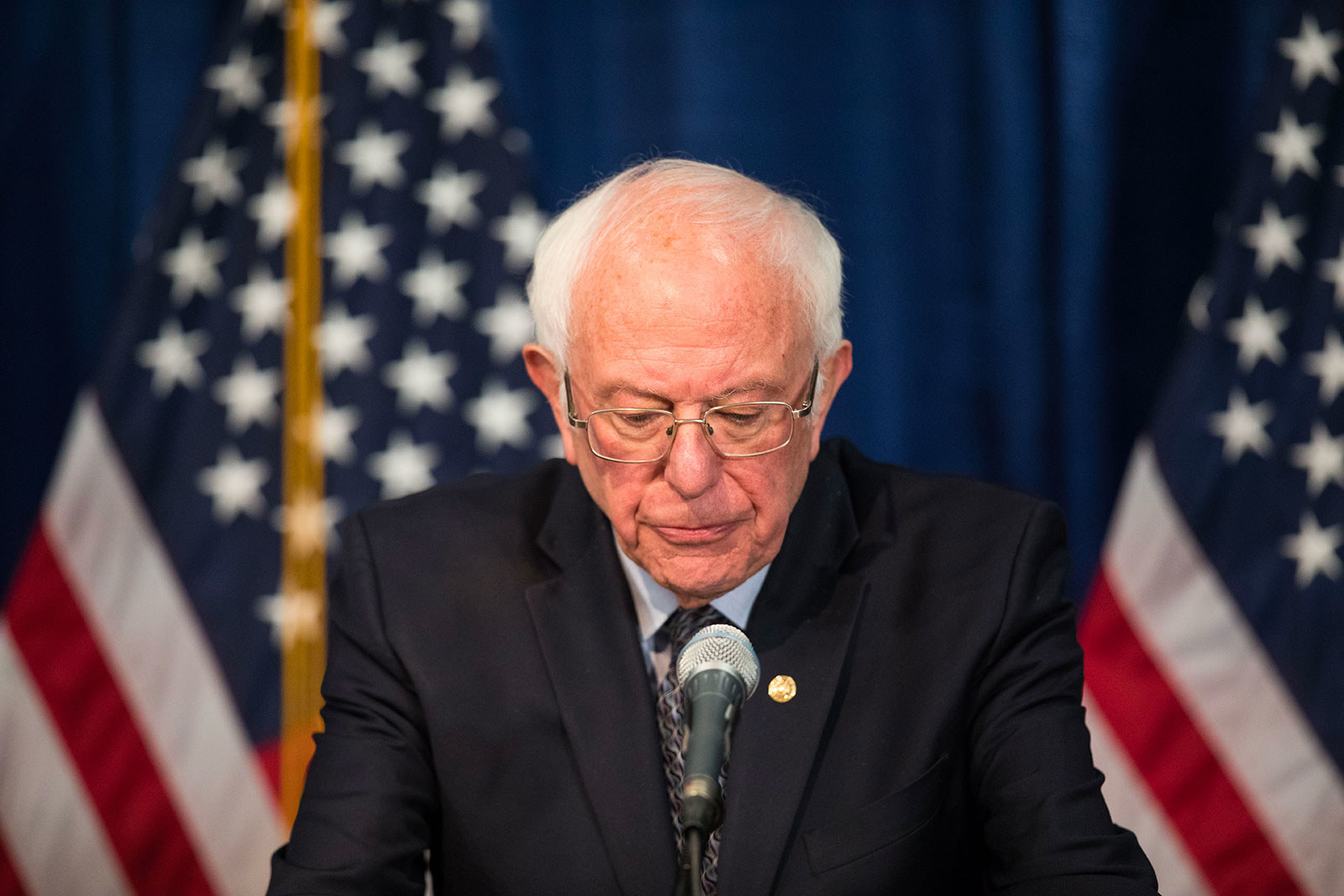
Around 1 p.m. in Burlington, Sen. Sanders delivers remarks to the media. He vows to stay in the race for the time being to champion progressive policies, but acknowledges he is “losing the debate over electability” to Biden, who holds a clear path to victory.
ANITA DUNN, Biden adviser: We were looking for tone more than anything. Is Sanders going to come out and attack us? We felt we were well on the path to winning the nomination, but we didn’t think he was going to get out on March 11 at all. The next week you had Ohio, Wisconsin, a state he did really well in. You had states where he would have felt that he could still be competitive. It was just too early. But we felt that the electorate had made its mind up. We had already put out the call to everybody that we did not want calls for [Sanders] to get out of the race. We were never that campaign. Joe Biden had run twice before, and he felt very strongly about letting people make their own decisions. He’s been there.
SHAQUILLE BREWSTER, reporter covering Sanders for NBC News: I remember he didn't take questions. One of the questions I had on my list was had he been tested for the coronavirus. It might have been a suggestion from a colleague or our NBC medical unit. It wasn't like the top of my list. It wasn't my priority.
RYAN NOBLES, CNN reporter: The other thing is people just stopped caring about the primary. Up until that point, when I got that text saying the rally had been canceled, the primary was the biggest story in America. That was the day that COVID became the biggest story in America. I had had a conversation with my wife that morning. She was very COVID nervous. She wanted me home. She was freaked out by everything. Between the Nevada caucus and Super Tuesday, between those 22 days, I had only been home for 21 hours. And I remember saying to her, “I've got to be here as long as Bernie is because I don't know when he's gonna drop out.” And she said, “Shouldn't he be going to Washington to deal with COVID?” And that was the first time I actually thought about it that way. I was so used to thinking about him as a presidential candidate rather than a US senator. After he delivered his statement, the question I shouted was, “Senator, are you going to go back to Washington to work on the COVID relief package?” He didn't answer. He walked out of the room without taking questions. But then [the senator’s wife] Jane came back into the room, pointed at me, and said, “Ryan, to answer your question, he is going back to Washington.”
ARI RABIN-HAVT, senior Sanders adviser: Obviously there are bigger concerns in the world than the feelings of campaign staffers, but when a campaign ends, you have a period of mourning. But often that mourning is done with the people you struggled with and worked with and fought with for a cause — especially in Bernie World, where we are all about a cause — and suddenly that was over. And when you lose normally, you have a period of going out to drinks, celebrating each other. In this case, both the campaign ended and the world ended at the same time.
JEFF DUCHIN, public health officer for Seattle and King County: I was supposed to go to the dentist that day. That didn’t happen. The outbreak was clearly spinning out of control. Almost every minute of every day at that point was putting out fires of one sort or another that were just erupting everywhere relating to COVID cases being discovered or questions about how to manage COVID patients or healthcare providers who had exposures or people calling from schools or you name it. We were getting inundated with calls from around the community about COVID in one context or another: people either exposed and needing to know what to do, schools wondering about canceling classes, children coming in with parents who might have been exposed or children who might’ve been exposed and what to do.
JENNY DURKAN, mayor of Seattle: We had been spending 18- to 20-hour days leading up to March 11, dealing with the health and economic implications. We had been working very intensely with our school district to try to plan for what a shutdown would look like. Those were some of the most intense days I've had in my life, in my career. We had no idea how big the problem was. Fortunately, we live in an area that has some of the preeminent researchers, scientific, and foundation facilities. And so working with them, we were able to see what we were actually facing. And if we had just relied on what the federal government told us, and what the CDC testing told us, we wouldn't have shut down because they were blind to the community spread. And they left us blind to the community spread of this disease. That's incredible. It is frightening.
JEFF DUCHIN: One of the huge challenges at that time was really that we didn't have federal guidance for a lot of these scenarios at that point. We were really creating it on the fly. There wasn’t a cookbook response we could go to. We were having to deal with each situation as a new challenge. It was quite a stressor.
DENISE JUNEAU, superintendent of Seattle Public Schools: It had leaked that the governor was going to start limiting large gatherings, that there was going to be a social distancing rule put into place. So I gathered my team and we started talking through all the scenarios. We had had a case, our first confirmed case — one of our principals at one of our high profile middle schools had contracted the virus the day before. And so we had to shut down that school to do some deep cleaning. Another school had a case, one of our high schools, so we had to close that down to do some deep cleaning. And we had a meeting with my senior leadership team, like, “If we keep going in this direction, and there continue to be cases, we are going to run out of capacity to clean,” which was already starting to become very evident.
JENNY DURKAN: We knew that order was going to result in businesses shutting down and workers out of work and so we had a meeting after the press conference to try to determine how we would deal with that. What aid could we get to those workers and businesses?
DENISE JUNEAU: I talked with the mayor and called some other high-level people to let them know that this was coming. When we made that decision to close for two weeks, it really was about, “OK, we're closing for two weeks. We'll do the deep cleaning. We'll kind of see what happens with the virus transmission.” People had to scramble. We really were not prepared for a long-term shutdown or to close our doors. Our main message was like, “We know this is quick, but get books into the hands of students.” Our teachers had to leave their classrooms. They had a lot of stuff that they had left in the classrooms.
JEFF DUCHIN: When do you shut down the community in order to prevent transmission for a disease that’s only affected a few hundred people, primarily in nursing homes? Being the first to do that takes a lot of guts from your elected leaders, to be able to be the first, to invent a policy like that, because of the consequences. At the time it was unclear whether or not that was really something that was needed, because there was no precedent. The consequences of school closures, nobody takes that lightly. It’s a very, very consequential path with a lot of adverse consequences for children and for parents.
PAULA WILLIAMS, alleged Weinstein victim who was in Seattle: We were terrified. I think we felt how heavy this was. There were a lot of us that had been like, Well, maybe it’s contained. But it felt bigger. It felt big to have schools shutting down. It felt like the world was changing.
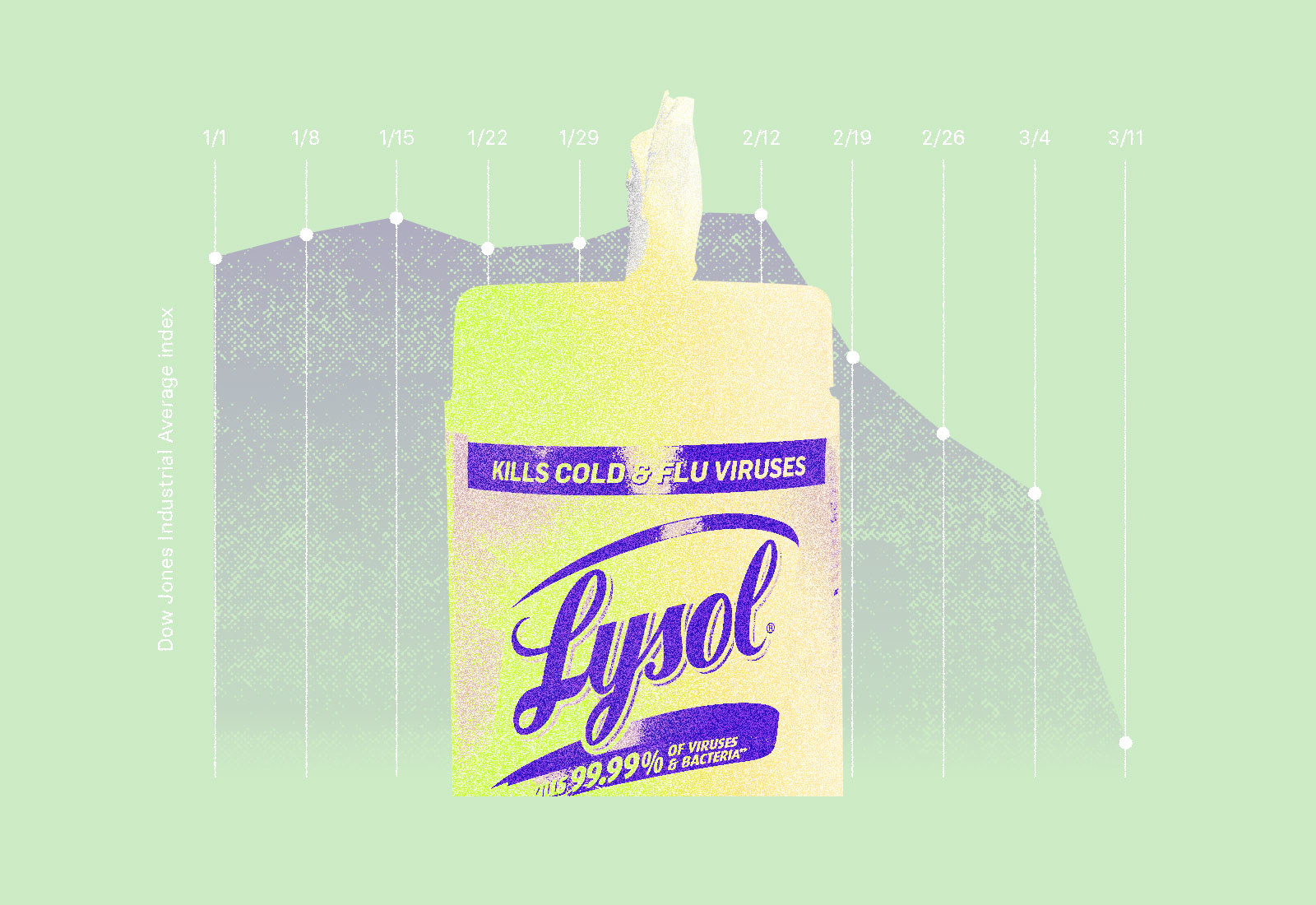
At 4 p.m., trading ends for the day on Wall Street, with the Dow Jones Industrial Average closing more than 20% below the highs of the previous month, signaling a bear market.
GORDON SMITH, JPMorgan Chase COO: I wasn't worried about that at all. The market would ultimately take care of itself. There’s nothing you can do about it. But we were putting a great deal of time into making sure that all of our ATMs were fully stacked with cash because people who could afford it were withdrawing cash and holding it under their mattress or whatever they did with it. And then cash usage just dropped way off. We were thinking about the money supply and how could COVID be carried on the notes that were inside of our ATMs. We obviously always keep our bank branches clean, but we don’t have people cleaning them every hour. So we had to make sure we could get enough of the right cleaning products and work out how often we should do the ATM keypads, how often we should do the seating areas. For someone in a job like mine, it’s unusual to be worried about whether Lysol or some other spray bleach is a thing that you should be getting out into your distribution channels as quickly as possible. It was very different.
FILIPPO SENSI, member of Italy’s Chamber of Deputies representing Tuscany for the Democratic Party: I had been committed to go into the Chamber of Deputies to vote, and I remember it was unreal. My wife greeted me at the door as someone who could die tomorrow or someone who could bring the virus home. All these MPs were coming from all over Italy and you really didn’t know what was going on so you looked at your brother, your MP colleague, as a threat.
JESSE SMEAL, owner of the Homebaked cafés in Rome: I was at the restaurant when we heard that. It was a little bit shocking and kind of surreal. I remember this kind of empty, helpless feeling. I have two restaurants. I closed one and went to see my wife at the other. I was like, Wow. This is crazy.
FILIPPO SENSI: We were home with my family — my three kids and my wife — and there was a breaking news program on every television channel in Italy. Prime Minister Conte went on TV in every Italian home just saying, “We have to close this, this, this, and this.” There was such momentum and it was all very grim. There was a sense of something catastrophic looming. It was the beginning of something. We really didn’t know how it could end. There wasn’t much debate about trying to have the more mild lockdown measures.
JESSE SMEAL: It was kind of surreal. My wife and I were like, This is something that’s gonna pass in a relatively quick manner, so we weren’t too worried. I took that weekend at home and then we realized later the following week, Wait a second. This is going to go on for a while. And then we started getting nervous. The thoughts in your head start: What are we going to do? That’s our only source of income. You’re always able to plan your everything. You plan out your day, your week, your month — but we were just going from day to day. We still are.
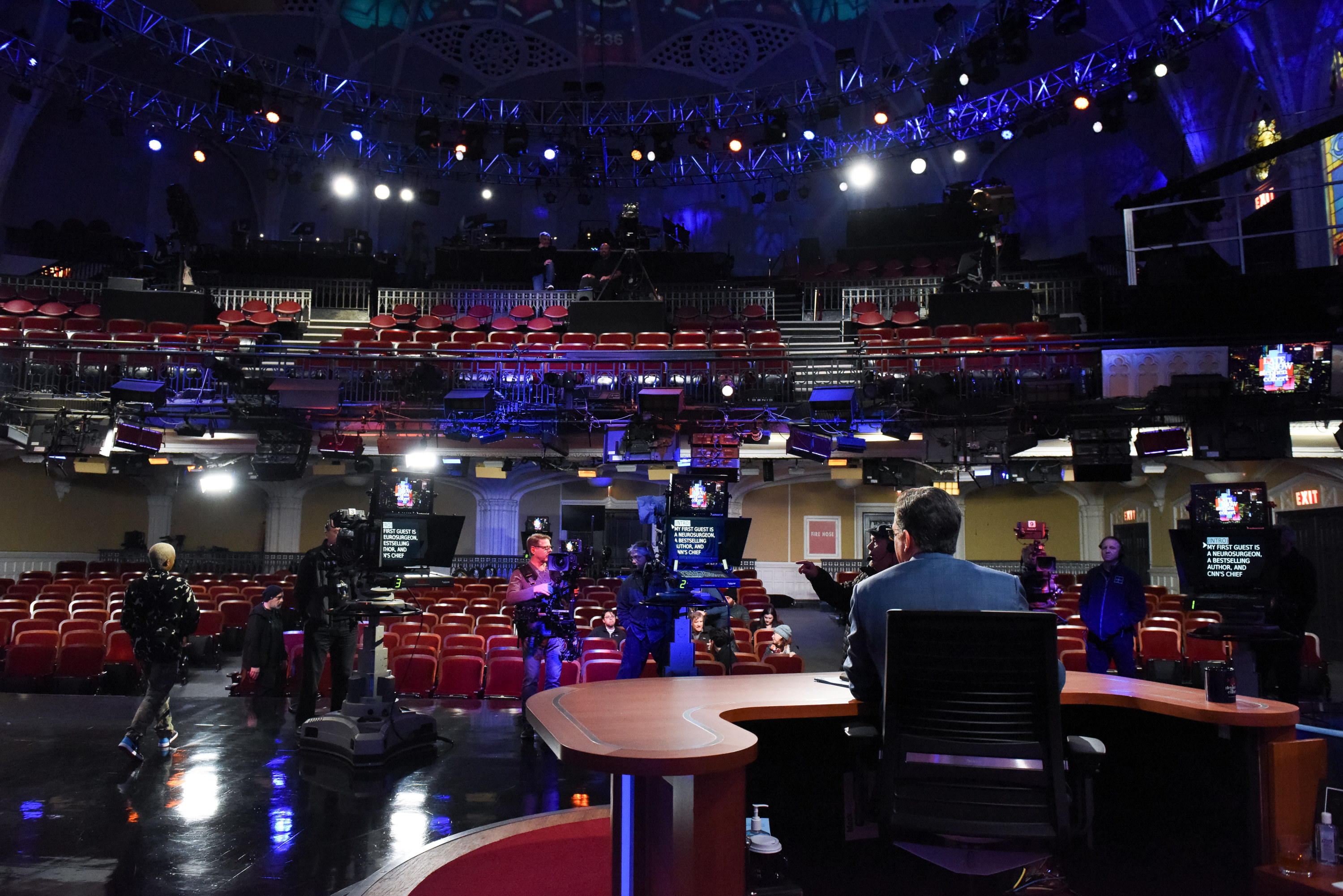
Around 6 p.m., late-night TV shows in New York City film their episodes. That afternoon five shows — The Late Show With Stephen Colbert, Late Night With Seth Meyers, The Tonight Show Starring Jimmy Fallon, The Daily Show With Trevor Noah, and Full Frontal With Samantha Bee — announced together they will halt taping with live studio audiences.
ZHUBIN PARANG, supervising producer for The Daily Show With Trevor Noah: Maybe it's just because as a late-night show that deals with news a lot we'd been talking about corona for so many months, but I'd always just been sort of comfortable to think of it as yet another narrative in the series of narratives that we've been dealing with for 10 years and not sort of internalize the fact that this is a very serious health threat to not just me but everybody.
JENNIFER FLANZ, executive producer and showrunner for The Daily Show With Trevor Noah: We started making sure nobody was touching other people’s food and that there was Purell all over the place. The last four days that we were in the office, it was like the fruit was wrapped in plastic because you kept hearing, “Oh, it's like the flu, but it stays on surfaces a bit longer.” So I would see the interns wiping down the countertops.
ZHUBIN PARANG: It’s really funny how, knowing what we know about corona now, how pointless all of that stuff was. We were going from enclosed rooms with 20 people inside to washing our hands and going back into another enclosed room with 20 people inside.
JENNIFER FLANZ: By Monday, I started talking to the other late-night showrunners, thinking like, This is gonna be a big deal, right? What are we gonna do? None of the networks had decided. There were no policies in place. So we just kind of started talking. As with everything at that time, there was a lack of leadership or lack of knowledge. And I think it felt like, OK, if we’ve come to this decision together, it will feel like something, like some kind of direction. So on Wednesday, we decided that we were coming out with a press release and that was from all the networks and all the shows, which is harder than you think, to get everybody to talk and on the same page, but it was very unanimous. Like, Let’s do this, and let’s do it together as a united thing.
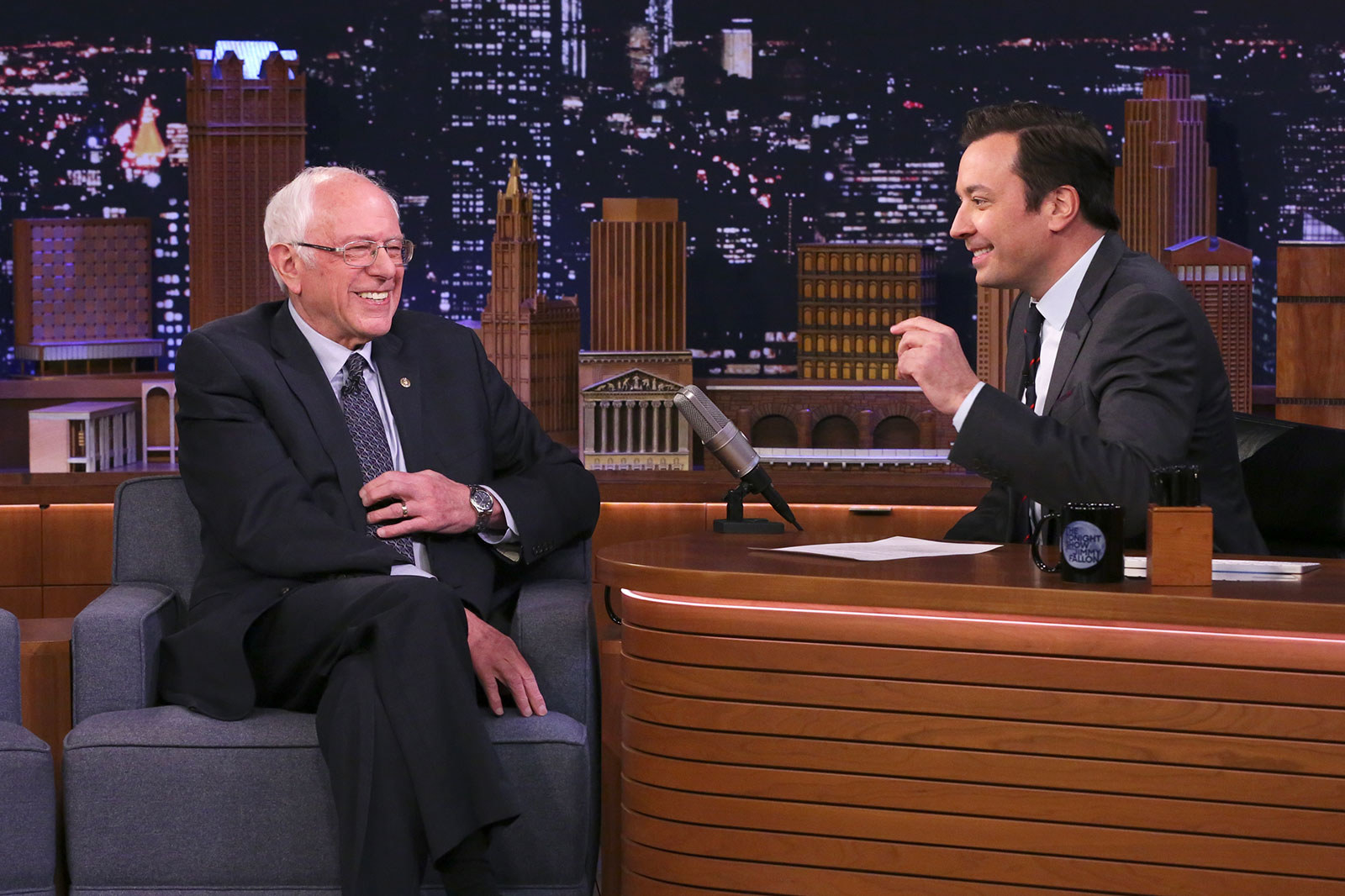
Sen. Bernie Sanders has traveled from Burlington to New York City to appear as a guest on The Tonight Show Starring Jimmy Fallon at Rockefeller Center — the last time the show will record with a live audience.
SHEILA ANGELO, director of press advance, Sanders campaign: We flew from Burlington to New York in a 13-passenger plane. It was just me, Bernie, Jane [Sanders], [communications director Mike] Casca, Faiz [Shakir], and [Sanders Institute executive director] Dave Driscoll. It was very quiet. We had a driver pick us up. We jumped into one car together. And then Bernie did his thing. He stopped downtown near Rockefeller Center just to walk around the block. People were hugging him, asking for photos and handshakes, and that's when things started to feel weird. I remember wondering if it was safe. He was still shaking hands and doing his normal thing. I got really anxious when we got to Fallon. When you're backstage, it's low ceilings, not a lot of space, narrow hallways. There was an audience in-studio. I remember going to the bathroom to wash my hands multiple times. No one was wearing a mask. The staff at Fallon lined up afterward to shake his hand.
FAIZ SHAKIR, campaign manager: Before the taping, I remember him and Jimmy having a brief conversation about how this was the last in-person audience. I think Jimmy told him, “Yeah, this is it.”
AARON TVEIT, Les Misérables star, then playing Christian in Moulin Rouge!: We were so lucky that we were playing to packed houses kind of our whole run, and then that week, we started to see people in the audience wearing masks, and then we started to see some spotty audiences, which for us was a new thing.
DANIEL MOSER, Broadway ticket vendor for Street Meet Promotions: All Broadway tickets were being lowered to almost half-price. You could see both parts of Harry Potter for $50 — that’s two Broadway shows for $50, any seat in the house. It was this massive snowball of Broadway discounts that was getting bigger and bigger and bigger.
TIM REGAN, Broadway ticket vendor for Street Meet Promotions: I do remember people kind of walking around us more than usual, but then you have your die-hard theatergoers who are seeing shows and they were in line doing their thing. I just remember telling easily 100 people, “Oh, everything is fine! Ain’t Too Proud has a show tonight! Come on in!”
KATHRYN GALLAGHER, You actor, then starring as Bella Fox in Jagged Little Pill: I was deeply obsessed with coronavirus news. I was seeing what was happening in Italy, and it just didn’t make logical sense to me that there could be an extremely contagious, deadly virus happening in Italy, where Fashion Week just was, and not in New York. I was like, That math doesn’t add up. Everyone was getting so annoyed with me. I felt like the grim reaper every day. I was ringing the bell, but instead of “The British are coming!” I was like, “The pandemic is here!!!” I remember the show that night very vividly. We had a few people out sick; we had a few understudies on. And the energy in the audience was somber. It was just nervous and scared, and every time there was a cough in the audience or a sneeze it was, like, daggers from everybody’s eyes. We were on the eve of something.
MATT DOYLE, starring as Jamie in the revival of Company: If you asked me the Monday of that week, the 9th, if Broadway would shut down, I’d say, “No, that’s not possible.” By the 10th, I was saying, “Maybe for a couple weeks if we have to do that.” Wednesday morning, I woke up and had every expectation we’d open the following week. I went to a fitting for my opening night suit. This role was a dream come true for me. It was everything I’d worked toward in my career. So for me to combat the panic, I was the one standing backstage arguing about the numbers and what they mean and how many people get the flu per year. I was absolutely ignorant to the reality of what was happening.
JENNIFER TEPPER, theater historian and 54 Below creative director: There had been whisperings and rumors of a shutdown, but as a theater historian, I know that in theater history there has never been anything like this. Broadway doesn’t shut down for a public health crisis — there was just no precedent. In the 1918 pandemic, Broadway never shut down.
MATT DOYLE: Even Patti [LuPone] just couldn’t understand it. She’s been a great counterweight to my overpositivity. One day in June, I was still saying, “I still have faith, maybe we’ll reopen this fall!” And Patti said, “Oh, Matt, your positivity is just heartbreaking.”
JORDAN FISHER, To All the Boys: P.S. I Still Love You star, who was then playing Evan in Dear Evan Hansen: For whatever reason, the energy of that show was out of this world. It was almost as if the audience knew that things were starting to go dark. We obviously didn’t have any type of clarity where that was concerned. They were just there to see an amazing show. So that’s what you go out there and do. I put on that blue polo, sang “Waving Through a Window,” cried a bit, screamed a bit, and it ended up being an amazing show.
RYAN MCPHEE, managing news editor at Playbill: I was seeing Six that night. It was the night before it opened, so it was the final preview performance, and ultimately its final performance, at least for now. I remember I was glad to be there, but hoped I hadn’t made the wrong decision in going.
JULIE FOUDY, former USWNT player and a sports analyst who was calling the game for ESPN: I recall not really thinking about the coronavirus ’til New York, so that was the second game, on March 8. Like, I wasn’t masked up on a plane. I don't recall anyone being masked up, honestly. It wasn’t until we got to Dallas when we were like, Oh man, this is real, but still I went out and had dinner with [former USWNT teammate and now–general manager] Kate Markgraf inside like normal in Dallas. And then I just remember turning to [ESPN play-by-play announcer] Sebastian Salazar the day we were in the stadium and it was packed. And I turned to him and I said, “If this game were to happen tomorrow, this game’s not happening, I don’t think. Is this a little weird we’re in this packed stadium and people are starting to shut down? This is weird.” And we kind of laughed and, you know, went on with calling the game.
MEG LINEHAN, women’s soccer reporter for the Athletic, who was watching from New York City: At that point in New York City, I think the general approach was wash your hands a lot, don't do handshakes, don’t touch your face, like that's where everyone was still at. I think a lot of us were looking to Grant Wahl, who is another soccer reporter, because his wife is actually an epidemiologist and had already started this podcast about COVID-19. And so a lot of us were going, “If Grant feels OK going and, more importantly, if Grant’s wife feels it’s OK for Grant to go, then I feel like it’s OK to go.” Because she was really one of the voices that I saw a lot early on saying, like, “This is going to be a much larger deal than you think it’s going to be. This is going to be a pandemic, and everyone needs to start getting their heads in the game.”
Just before 6:45 p.m. CT, the entire USWNT takes the field wearing their warm-up jerseys inside out to hide the logo of the governing federation as part of an equal pay protest against their employer. Two days earlier, US Soccer had argued in court filings that women athletes were less skilled and worked less demanding jobs than their male counterparts. The USWNT wear their jerseys this way during the national anthem before donning proper jerseys for the match.
MEG LINEHAN: I had gotten kind of a tip to keep an eye out. So I just pulled the photos and said, “Hey, they’re wearing their warm-ups inside out, hiding the US Soccer crest, but not the four stars that they won via the World Cup,” and then I just legitimately wrote, “Yeah, that feels intentional,” because I knew it was something, but I didn't have necessarily the right language from the players to call it a protest or to call it, you know, some sort of on the field statement.
JULIE FOUDY: I thought it was brilliant. I was like, Wow, to think of that that quickly. It was like, You can’t take away our four stars and what we’ve done, but we're not going to honor you by showing the US Soccer crest. That’s on our backs. And then obviously it became viral. I had friends sending me pictures of them in their T-shirts like that. So people loved it.
MEG LINEHAN: The fact that that was still making headlines even as basically the sports world was shutting down I think speaks to how important it was, especially from a soccer point of view. I feel like I didn't sleep that week, but also I think it was really strange for a lot of us who are obviously in sports. Like if we’re covering sports and then all of a sudden sports aren't happening, I think there was a lot of concern of “OK, what happens next? How do we get through however long this downturn turns into?”
GEORGES NIANG, Utah Jazz forward: We get to the arena and Rudy isn’t there — he’s in his room. I thought it was just a sickness, like a cold. It happens that time of the year all the time in the NBA, especially with us coming off a long road trip. We had just gone to New York, Boston, Cleveland, Detroit.
MARK TATUM, deputy NBA commissioner: We actually had a board of governors meeting that was scheduled for March 11 at 4:30. The main crux of that meeting we knew was going to be to talk about the virus. At that point things were moving really fast, and we were trying to keep up with the news of the day. At that point there were only two jurisdictions in the United States that put limits on the number of people who could gather. We always followed the science and we always followed the data. After Fauci said what he said, the options were, do we play without fans — and again we had just announced two and a half hours earlier that the [Golden State] Warriors would, in fact, play without fans — or do you pause the season altogether? There was a lot of debate around that.
MARK CUBAN, the owner of the Dallas Mavericks, who was watching his team play the Denver Nuggets at the American Airlines Center in Dallas: When I got to the arena, I went through my normal routine, then some of our staff and players wanted to know my thoughts about what was going on, so about 30 minutes before the game I went into the locker room to speak with them. What I said was that I don’t know exactly how serious this is, but we will know more when we walk out to the court. If the arena is half empty, then we probably have something to be concerned about. I asked for questions and [Mavericks star] Luka Doncic asked me if I thought there was a chance the season could get postponed or canceled. I told him: I really didn’t know, but I would guess that it's maybe 5% or 10% — as of now, I don’t expect it to happen. I was more than a little surprised when we had a packed house. Literally not an empty seat. People yelling, screaming, having fun. Just another game.
MATEO GALLARDO, a Thunder fan who was in the Oklahoma City arena: I was on about the second floor, which is a pretty good view of the court. I guess you could say the first sign of something being off was when I realized it was taking a little too long to tip off and before tip-off the whole crowd always claps while a hype song plays. And I noticed we were clapping a little too long, but I didn’t think much of it at the time. And then we suddenly see the players start walking into the locker room, and it’s at that point that everyone knew that something had gone wrong. The whole arena was just filled with a lot of uncertainty, confusion, and it was very bizarre. They were literally seconds away from tipping off and starting the game.
GEORGES NIANG: We get on the court and I see [then–Thunder star] Chris Paul going over to the scorer’s table and calling someone over. There’s a bunch of people in suits on the court. I’m thinking that OKC was like, “We heard Rudy’s sick so we don’t feel comfortable playing the game.” We were one game ahead of them. You know, maybe they would have us drop a game or have to forfeit? I just thought maybe they are trying to pull a fast one on us. Maybe that was just me mentally hoping that’s what it was and Rudy wasn’t sick. Once they told us to go back to the locker room, I knew it was over. I knew he must have tested positive.
MATEO GALLARDO: The announcers themselves didn't give us any specific details about what was going on. After waiting for a while, after the players had gone to the locker room, we see Frankie J come out to the court and start performing his songs. And he was supposed to be the halftime performance, so considering he had made such an early appearance, that's when I knew this game was not going to happen.
GEORGES NIANG: We got into the locker room and coach [Quin Snyder] addresses the room and says Rudy [Gobert] has tested positive for the coronavirus. I just remember everybody put on masks and gloves and was taking it really seriously for the first couple hours. But then you’re hearing stories that masks won’t help or you don’t have to wear gloves, it can’t be contracted through this, you’re hearing a whole bunch of different things. Then you’re thinking, All right, if I have it, then you have it, and if we all have it, that’s just how it’s going to be. We were in the locker room for a long time. It was probably six hours.
MARK TATUM: I was actually walking down Fifth Avenue on the way to meet my family for dinner and I got a phone call from our general counsel saying, “Hey, Gobert tested positive. We’re going to probably have to shut the season down.” At that point we scrambled around calling the Oklahoma City Thunder, I know that [NBA Commissioner] Adam [Silver] got a call from [Thunder team owner] Clay Bennett, we got on the phone with [Thunder general manager] Sam Presti, we got on the phone with the Sacramento Kings, and we canceled the New Orleans Pelicans vs. Sacramento Kings game. With so much uncertainty around the disease, we very quickly came to the conclusion after [Gobert’s positive test] the safest thing for us to do for everybody involved was to just take a breath and pause the season immediately.
CRAIG PLESTIS, executive producer of The Masked Singer: The idea to include Gov. Palin came from our casting producer, Deena Katz. We didn’t even think she would entertain it at all, and we were just excited and astonished that she even said yes. We went right away into vocal training with her and getting her up to speed. We felt awkward when she said she wanted to sing “Baby Got Back.” She wanted to show a side of herself no one had even seen. Our show is a guessing game with people who you never think would ever sing. She wanted to play along and punk America, and she did that effectively. No one knew it was her until the bear mask came off!
Palin, dressed in a fluffy pink and blue bear costume, proceeds to rap “Baby Got Back” by Sir Mix-a-Lot while host Nick Cannon twerks alongside her. Audience members and the celebrity judges seem genuinely stunned at what they are witnessing. Footage of the performance immediately goes viral.
CRAIG PLESTIS: It blew up! It was like lightning that night. I already knew what was going to come out, but I didn’t know that the reception was going to be so big and how everyone would say this was going to be the start of the end of times. Luckily we ended filming right at the time most stuff closed. I distinctly remember thinking, Great, we were able to get everything we needed in the can. That was a small miracle.
As the episode ends, Fox transitions to a special news report ahead of President Trump’s address to the nation about the coronavirus.
CRAIG PLESTIS: I saw that transition to the news broadcast, and that’s really what made it a surreal night. You had Sarah Palin twerking to “Baby Got Back” and then going to an announcement from the president of the United States. It really was a moment in time. Who knows if we’ll ever have another like that again? It was a turning point, a focal point for people to talk about everything happening in the world because it was so strange to see her in that way, and it was so strange to think a pandemic would stop everyone on the earth. So it got looped into it because of the surreal nature of everything. There’s been no other day like it.
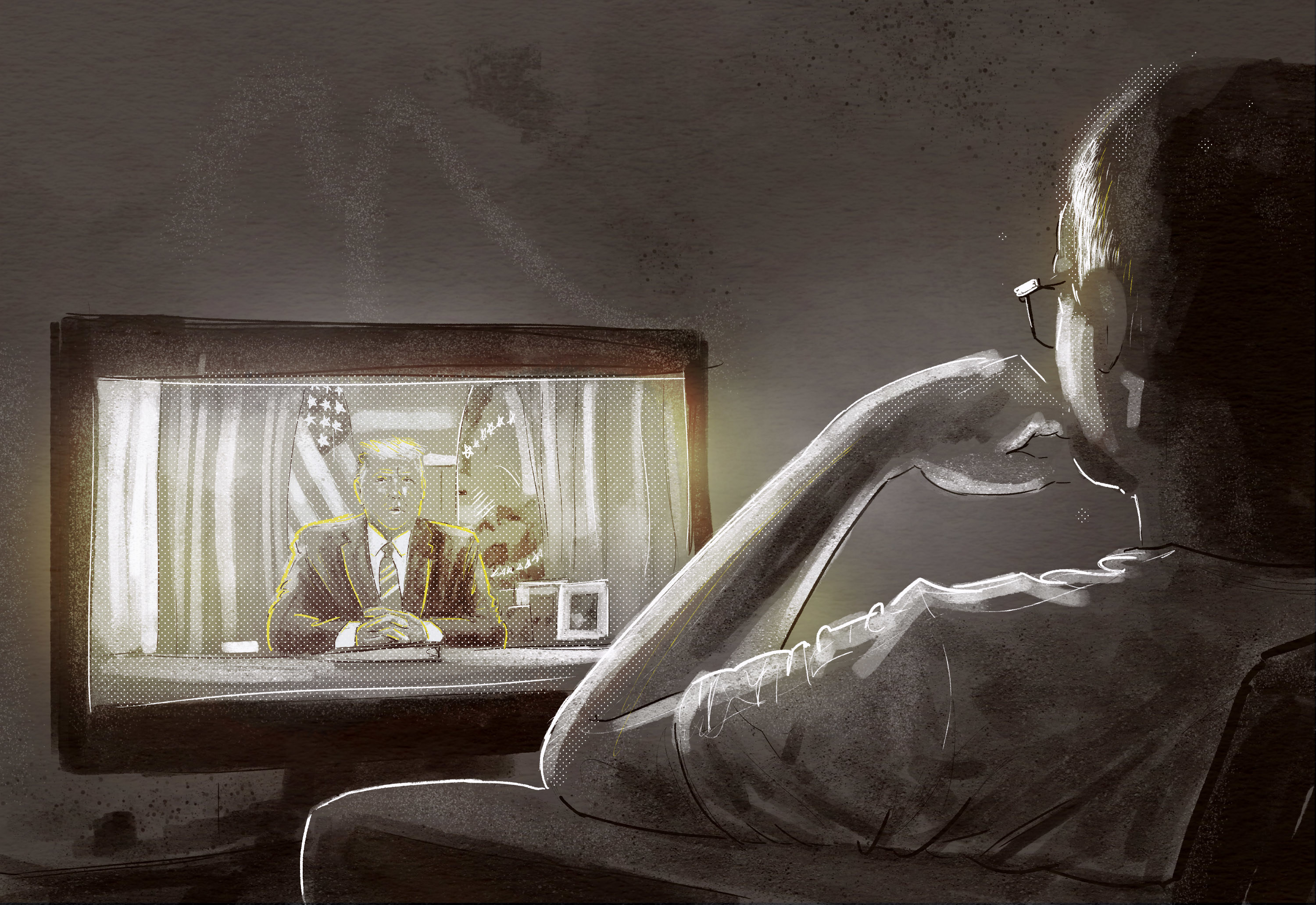
Shortly after 9 p.m., President Trump addresses the nation from the Oval Office. He announces the US will suspend travel from much of Europe for at least 30 days. The rules will not go into effect until Saturday, March 14. The confusing wording of the speech causes many to incorrectly believe all trade will also be suspended and prompts many panicked Americans abroad to race to buy tickets home.
ANTHONY FAUCI: I went home and watched the speech on TV. [Trump adviser] Stephen Miller, with a little help from Jared, put it together. Debbie and I reviewed it. We made a couple of changes, some of them they took, some of them that they didn't. But, all in all, I thought it was reasonably expressed. But what should have happened is they should've just shut it down, instead of saying we're gonna shut it down on this date. That really got people to go immediately, travel and crowd in the airports. It likely should have been: It's shutting down. Period. As of now. You know, that kind of thing.
ANITA DUNN, Biden adviser: We were still in [Biden] HQ in Philadelphia when Trump spoke. We were fortunate to have Ron Klain on the campaign, who had been the Ebola adviser [in the Obama administration], and he knew more about this than anybody. At our headquarters, people were sitting elbow to elbow — just a disaster waiting to happen. We were foolishly complacent about it “not being in Philadelphia yet.” We were winning the nomination, and it was an amazing moment in our lives. We were much more in the “We’re winning this thing, let’s actually have the luxury of planning the general election, and sure, everybody’s going home for two weeks. See you in two weeks!”
ED BASTIAN, Delta CEO: This was the crisis of all crises. As an industry, we've been through 9/11 and other crises, but I had a sense on the 11th that we had never seen anything like this before, what we were about to experience. We were putting the airline asleep, as I called it. And we needed to do it quickly. It took us a few weeks to do, because we had to get people where they were going, get them back home. We did a lot of trips to countries we've never flown before, working with the State Department to extricate American citizens all over the world — charter missions to bring people back home. There was so much happening. I didn't really have time. I didn’t have a chance to sit back and digest it. We just needed to keep moving. That was probably a four- or five-week period nonstop — just keep moving, 24 hours a day, seven days a week.
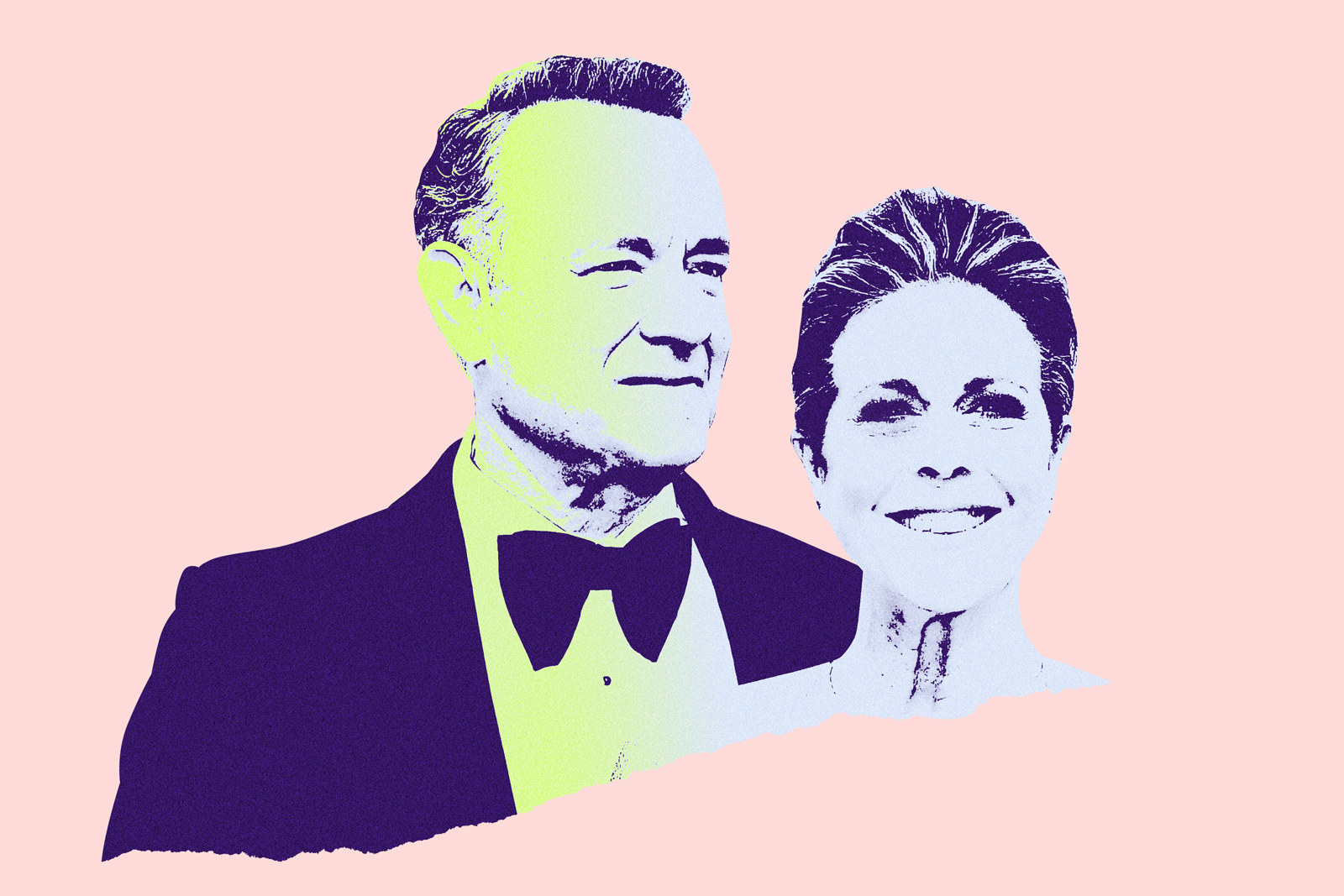
At 9:03 p.m., Deadline reveals Tom Hanks and Rita Wilson have tested positive for COVID-19 while in the Australian state of Queensland. Minutes later, Hanks confirms the news in an Instagram post from Gold Coast University Hospital.
ANNASTACIA PALASZCZUK, premier of Queensland: I think everyone remembers the day very clearly. Tom had come out especially to be here on the Gold Coast to film in Baz Luhrmann’s Elvis production, and I actually received a text from Baz saying, “I need to talk to you about something.” I had a conversation with Baz. Everyone was concerned. I was flying down to Sydney, because we were having our national cabinet meeting with the prime minister and then as we were about to take off on the plane to head down there, the news broke formally that Tom Hanks was in the Gold Coast hospital.
CHET HANKS, actor and son of Tom and Rita: I was in New Orleans filming Your Honor. I just remember getting off work — I was on set all day filming — and as soon as I got off, I got a text from my mom. They were down in Australia, and she just let me know that they tested positive for COVID and they were going to the hospital. That was kind of overwhelming and scary. I was very worried about them. But they weren't worried so I remained calm. They assured me that they were going to the hospital and they were going to get treatment and that they felt relatively fine. They obviously were experiencing the symptoms, like extreme flulike symptoms, but I could hear in their voice that it wasn't extremely bad.
ROSANNA ARQUETTE, actor and alleged Weinstein victim: Rita is a friend of mine. We’ve done a movie, an Eleanor Coppola film [Love Is Love Is Love], a couple years ago. It was before we knew how super horrible this virus was, where people were just on ventilators. It was the beginnings of that. So it was scary. Is she OK? I was concerned.
ERIN WERDER, then a clinical facilitator for Gold Coast University Hospital’s COVID-19 wards: There was a lot of media outside the hospital. The vans, the cameras. They can’t come on the property because they’re not allowed to, but they were trying to catch a glimpse of anything but there was nothing to see. Our team is so professional and just explaining to the nurses that everybody is a patient here. Everybody is the same. It doesn’t matter if you’re the Dalai Lama, Tom Hanks, or the little nana from down the road — everybody gets treated the same.
KYLIE ALCORN, infectious disease physician at Gold Coast University Hospital: Certainly with the arrival of the Hankses, that created a bit of a media buzz naturally, and I think it normalized it for a lot of people, made people realize that anyone could actually get this and maybe we all need to think about how we are in the world now to try and curb the pandemic. But for me certainly, by that point we were fully all systems go. Whenever someone in the limelight has an illness, I think people realize it can happen to anybody. I don’t know what the psychology is about that. But it could happen to me, it could happen to anybody. It’s not a plague. It’s not you did something wrong to get COVID. It’s just a nasty little virus that spreads.
ANNASTACIA PALASZCZUK: I did a press conference, I think at the Wentworth hotel in Sydney, where I actually said we wish Tom and Rita a speedy recovery, that I’d been in contact with Baz. I was asked directly about that at the press conference. I think it became a big wake-up call for everyone, that this was happening. It really put it in more of a perspective. That national cabinet meeting was very significant because that’s when we realized, as a nation, that we were in a global pandemic and we had to take steps. And Australia really responded very, very quickly in terms of when we went into that lockdown. The national cabinet put in a very strict national quarantine, and we shut the international borders. We were getting predictions from our chief health officer that in Queensland there could be up to 30,000 deaths, so we acted very swiftly.
ERIN WERDER: We’re very fortunate our hospital and our COVID wards face the ocean. They could see the sunrise every morning. We try to make it as comfortable as possible. I think the biggest thing for them is not being able to see the nurses because they’re covered in PPE, but we’re lucky that our doors have a window, so when we’re on the outside we’re not covered in PPE so they can see us and we can talk to them through the window, which is much more comforting for them. They get fed three meals a day; they get snacks. For a lot of them, we’ve ordered in food for them and helped to make it as comfortable as possible. We got them free internet, hooked up to movies. We give them lots of things to do.
CHET HANKS: My phone was blowing up with, like, “Are you OK? Are your parents OK?” Everyone I know was hitting me up, sending their wishes and whatnot, so I just figured I would just address it on Instagram because people were really worried, and I just wanted to reassure people that my parents were OK and everything was good. I talked to them and they seemed fine. I think they were quarantined in different rooms for the first few days and then they got to be together for about a week. And then they got to leave the hospital for about a week or so, I think, and they just quarantined at the place they were staying.
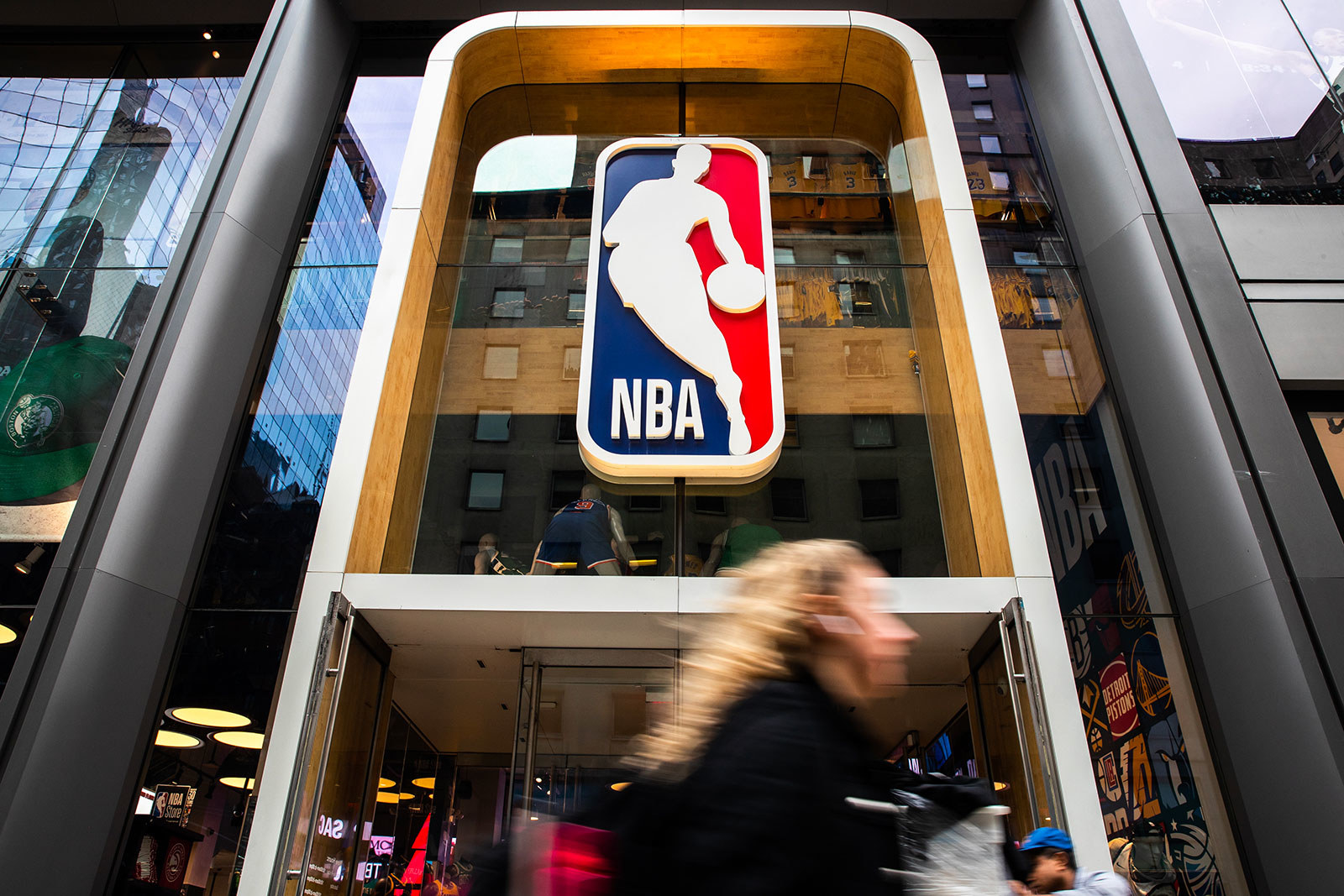
At 9:31 p.m., ESPN reporter Adrian Wojnarowski tweets that the NBA has suspended its season.
MATEO GALLARDO, Thunder fan: We had already driven out of the city area. We were pretty much parked at a restaurant nearby, and of course Adrian Wojnarowski tweets that the NBA has postponed its season and I was just like, Wow. This is crazy. Because we have never seen a professional sports juggernaut like the NBA cancel its season due to an outside force like this before. The whole time I was just thinking we were on the second floor and I was just thinking to myself, Viruses are obviously airborne. I was kind of hoping and praying that I was high enough, not close enough to get anything. At the same time, you were also like, Wow, I was there for a part of history, basically, because that was the game that stopped the NBA. I made it a point to keep my game program on hand like, This is special and this is a part of history.
MARK CUBAN, Dallas Mavericks owner: Everyone saw my reaction. We went from 5% or 10% in my mind to shut down. I was stunned. If it was serious enough to shut down the NBA, it really brought home that this could be a bigger problem than any of us had imagined, not just in the NBA but around the country and the world. You could hear murmurs from the crowd as people found out.
GEORGES NIANG, Utah Jazz forward: One of our guys was on the phone and literally said, “Yo, they just canceled the season,” and then everyone got the Twitter notifications. A bunch of players were trying to call private jet companies. The team was trying to call hotels because we needed a place to stay because we couldn’t get flights out. But what hotel is going to take 50 potential COVID positives? Nobody was going to take us.
JON CAMPBELL, Albany correspondent for the USA Today Network New York: In the days leading up to it, it was like a will-they-or-won’t-they-cancel-it thing. As always with Cuomo and [NYC Mayor Bill] de Blasio, there’s always a turf war of some sort, and this was no different.
JOSEFA VELASQUEZ, senior reporter at the City: It’s part of this ongoing feud that they have that’s yearslong at this point, but there was certainly confusion over who has the authority to do what, and not just for the parade — it happened with school closings, it happened with the shelter-in-place order. It’s just this recurring theme of the mayor trying to do something, and the governor stepping in and saying, “No, you can’t do that.”
COREY JOHNSON, New York City Council speaker: I remember some council members asking me, “Why are you calling for the parade to be canceled? It seems like an overreaction.” The parade organizers, understandably, they didn’t have access to all the public health information. They were just sort of seeing what they saw on the news, and they weren’t following it in the super-close way we in public office probably were. So they were concerned about calling off the parade when the parade was never called off before in its entire history, so it was a big decision.
CARLINA RIVERA, New York City Council member and chair of the Committee on Hospitals: City officials told us they only had capacity to do about 120 COVID-19 tests per day at the time citywide. It just showed how little help the feds were giving at the time and how little we actually knew about the disease spreading in New York City. So with that disturbing information, and then thinking we were going to bring in literally tens of thousands of people from across multiple states to pack into every pub in the city, I just thought it was such a bad idea.
COREY JOHNSON: After huddling all day with my team inside of City Hall, we called for the St. Patrick’s Day parade to be put off. I remember the mayor being concerned about me putting that statement out. He called me and asked me to kinda hold off and give a little more time to make that call, and I ended up putting the statement out anyway that evening. I think that day was the day someone sent me the Atlantic piece “Cancel Everything” that looked at what happened 100 years ago between two different cities — one city that canceled events and another that didn’t cancel events — and I think the events they were actually looking at were parades. So that was, to me, like, Oh shit, we need to do this.
LT. COL. JOSEPH WHALEY, commander of the New York Army National Guard 1st Battalion, 69th Infantry Regiment, which has marched at the lead of the parade since 1851: On the 11th, I got the order that 200 of my soldiers were going to be going to New Rochelle. We started onboarding guys and bringing them in, screening them so they could go to New Rochelle, which was the first major cluster of COVID here in New York. On the night of the 11th, I was at the Sheridan Hotel in NYC. There was the big ceremony for the grand marshal, James Callahan. We were sitting around having dinner, and at the end of all the speeches that night is when the governor and the mayor and everybody came on and said it was canceled.
JON CAMPBELL: It was one of the very first big events that was canceled. And then later, there were questions about the NYC Marathon later that day. It was a time when canceling these events wasn’t just a foregone conclusion. It put all that in motion. Of course there were going to be people who were going to be disappointed that it was canceled and thought it was the wrong move at the time, but within weeks — days — it was just commonplace. Every big event was being canceled.
PETER MCINTOSH, usher: All I remember was the feeling of weakness. I said, “Oh no, this ain’t good. This is going to be pneumonia.” Day by day, I progressively started getting worse. By Friday, I could barely walk. That week I was working Who’s Afraid of Virginia Woolf? with Laurie Metcalf, and I said, “God, just let me get to Friday. I promise I’ll go to urgent care on Saturday. I promise I’ll go to urgent care. Just let me get to Friday so I can at least make this little lick of money and get myself going.” Lord have mercy, I don’t know how I made it that day [March 6], but I showed up for Who’s Afraid of Virginia Woolf? I was laying down on the ground before the shift started. I was shutting down.
KATHRYN GALLAGHER, Jagged Little Pill star: During Act 2 of the matinee, we got the news that an usher had tested positive at Who’s Afraid of Virginia Woolf?, and that was right next door to us. I will never forget, one by one, people coming by my dressing room and saying, “So that coronavirus thing you’ve been talking about...tell me more!”
ELENA BONOMO, drummer at the musical Six: The night that the usher tested positive, they told us they were going to really spend time disinfecting the whole theater. They were going to get a whole team in there to do their thing overnight. I remember saying to our company manager, “Oh, what a relief! Our show’s not going to be canceled tomorrow!” We were all just so excited about opening the next day that we just didn’t want to let anything stop. I just didn’t want to believe that anything bad could happen.
TOBY MARLOW, co-creator of Six: It all kind of came to a halt on the 11th when the New York Times article came out saying there was an usher who’d just tested positive for COVID who worked recently at the Six theater. That’s when it was like, This is a thing that is directly going to affect us in the immediate future and might already be affecting/infecting us.
LUCY MOSS, co-creator of Six: Seeing that article, I sort of felt like it was game over. Like, Oh, it has caught up with us.
PETER MCINTOSH: My friend Frank texts me and says, “Hey Peter, have you seen the paper?” And I said, “No, why would I need to see the paper? Why are you texting me this right now? I don’t wanna hear about Ariana Grande or whoever, I don’t care. I don’t wanna hear what Trump did. I’m in the hospital, Frank!” And he goes, “But, Peter, you’re in the paper. You’re in the New York Times.” I broke down and cried. I just did. But my spirit made me laugh, and my spirit said, “When you were a child you always wanted to make it in the paper. You were going to be this big superstar, right? Well, you got what you wanted.” I was the talk of the town. I was the hottest gossip. Essentially, I was the one who broke Broadway.
MACY SCHMIDT, music assistant at Aida and Tina: The Tina Turner Musical: When we found out about the usher, I got super panicked and felt in my stomach that something terrible was happening. There were a lot of coworkers around me who were like, “Oh, it’s going to be fine!” and didn’t seem super bothered. It was interesting to be in a room with so many people at the time and be gauging very, very different reactions on the spectrum of panic.
TOBY MARLOW: When the show didn’t open, it wasn’t like, Oh no, this thing has happened to us — it was a thing that was happening to the entire world, you know? Everything was stopping. It really made the small way that it was affecting us seem minuscule in comparison to this huge existential threat to humanity as we know it.
LUCY MOSS: It wasn't like, Oh, we didn't get to do our show. It was like, Are we all going to die?
AARON TVEIT, Moulin Rouge! star: I’m an avid basketball fan, so I was watching very closely what was happening with the NBA. When that started to happen, I quickly thought of our show because an acting company is as close in each other’s personal space as basketball players bumping into each other all over the court. When I heard about the usher, it became very real. But unbeknownst to me, I had already begun to feel the symptoms the Sunday before. I just thought I had a cold, but it turns out it was COVID.
MATT DOYLE, Company star: I was going backstage the entire show and looking at my phone. That first month, especially, I don’t think I’ve ever searched the name Cuomo so much in my life. I was in my dressing room and I ran down the hallway, and declared to the whole dressing room wing that Tom Hanks had COVID. Everyone was like, “No way!!!” I just remember coming backstage, looking at my dresser, taking a deep breath together, and saying, “Is this the last time we do this for a while?”
DANIEL MERTZLUFFT, director of Ratatouille: The TikTok Musical, who was then in a Broadway theater audience: In the three hours I was seeing Company, the world had changed. I went to drinks after work with friends, one of whom is a business owner that works in theater marketing, and I remember him arriving at the bar and sort of realizing for the first time what it must have been like on the day the Great Depression started. What he said was, “This is not a month; this is going to be months. My business no longer exists. I have to fire my entire team.”
ASTEAD W. HERNDON, national political reporter at the New York Times: I knew people weren't going to Broadway. So the person who I was dating at the time was like, “Oh, we're gonna sneak and get these Hamilton tickets.” We bought standing-room tickets because we knew people wouldn't show. And then we decided to sit. It was like three-quarters full. We went and sat down, and I remember my phone was off and I'll just never forget turning my phone back on after the show. My first text was from my friend. It was an all-caps “FUCK.” I remember saying aloud to her, “Oh my god, Tom Hanks has COVID. Oh my god, the NBA shut down.” That ride back from the show was so eerie. I remember some teenager ran into the subway, dramatically sneezes and spits and yells “CORONAVIRUS!” and then runs away. It was the one day the reality was starting to set in, and it was suddenly deeply uncomfortable. ●
Reporting by Peter Aldhous, Hamed Aleaziz, Stephanie Baer, Matt Berman, Ruby Cramer, Ellie Hall, Zahra Hirji, Mat Honan, Amber Jamieson, Stephanie Lee, Jane Lytvynenko, David Mack, Paul McLeod, Christopher Miller, Julia Reinstein, Kendall Taggart, and Dan Vergano.
